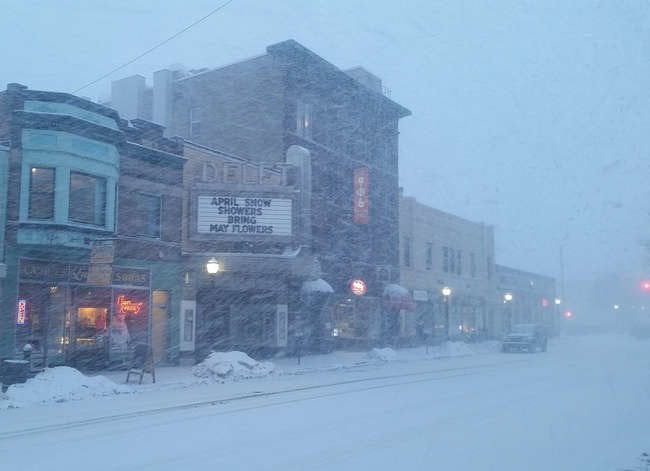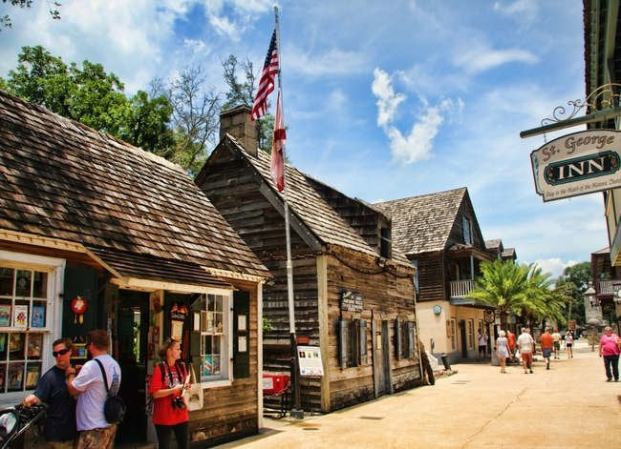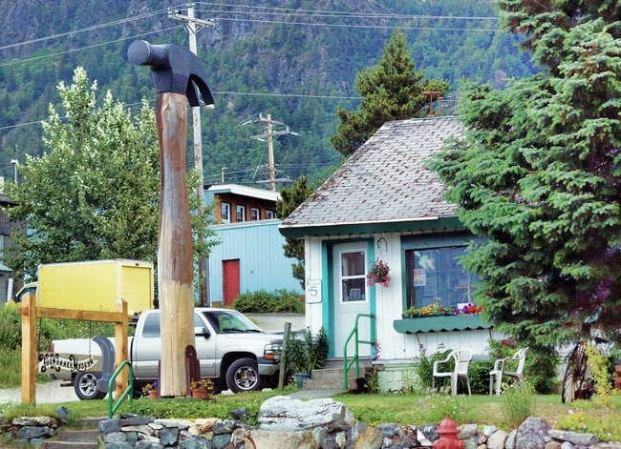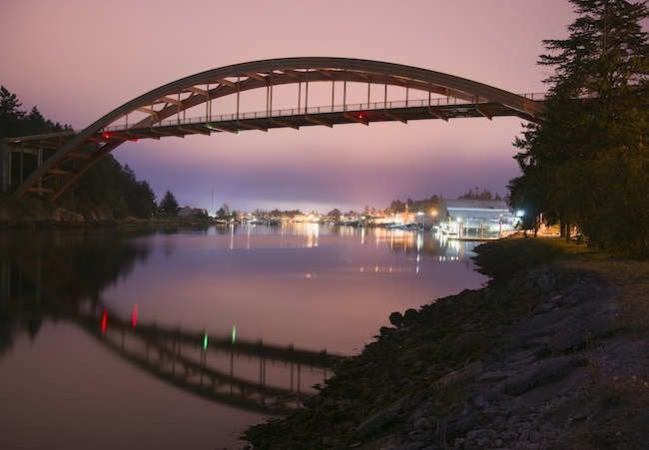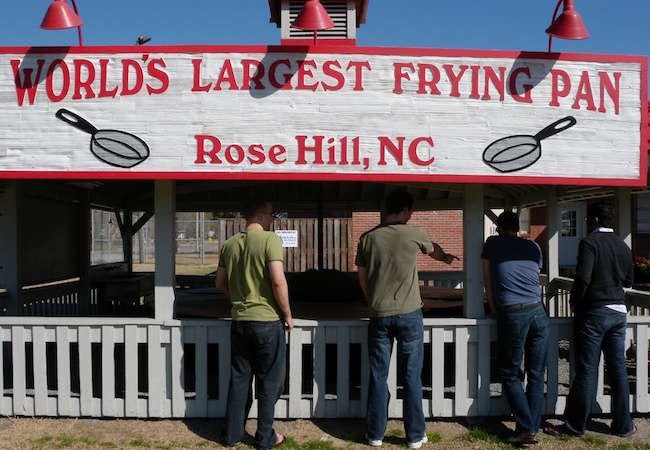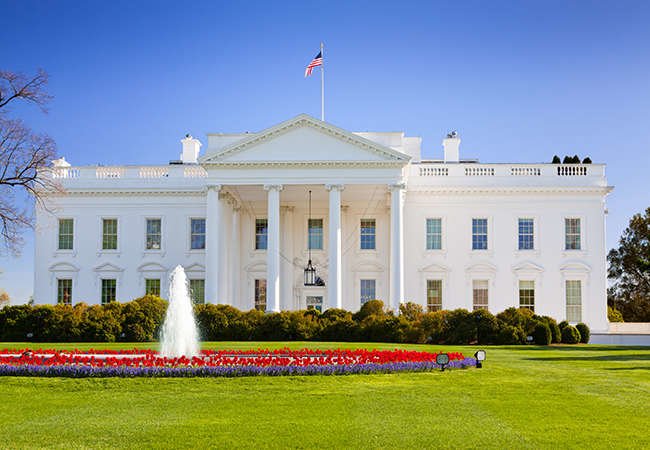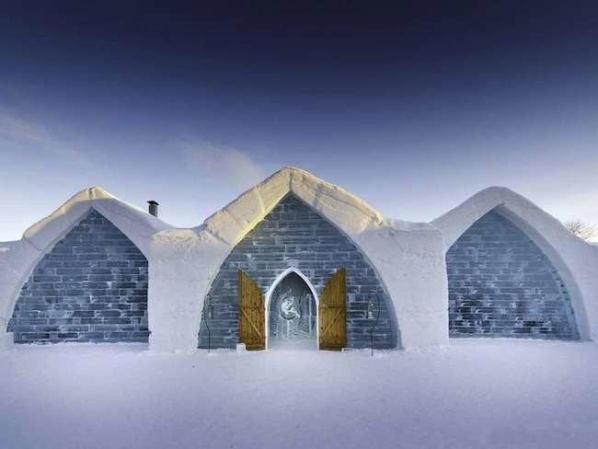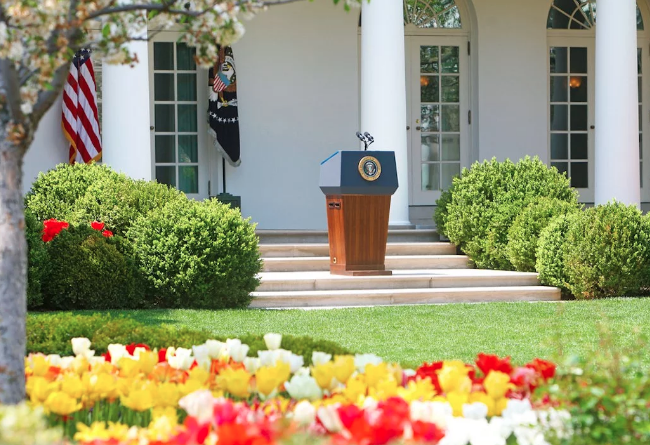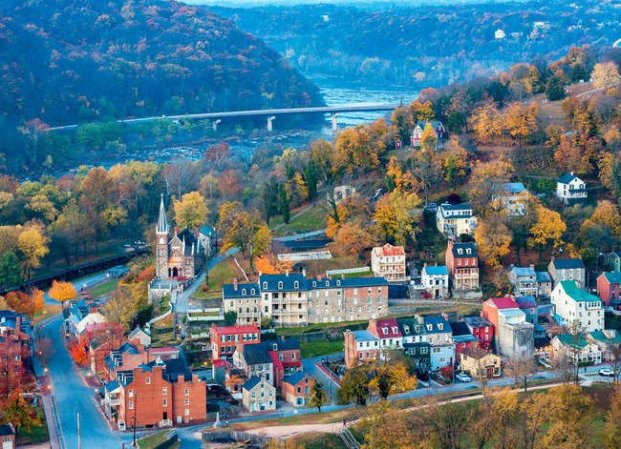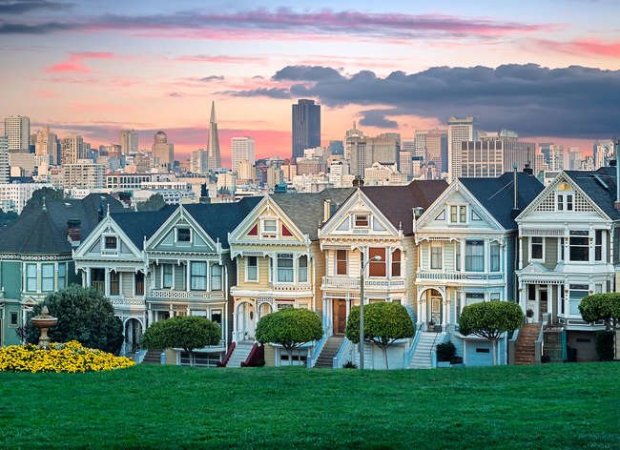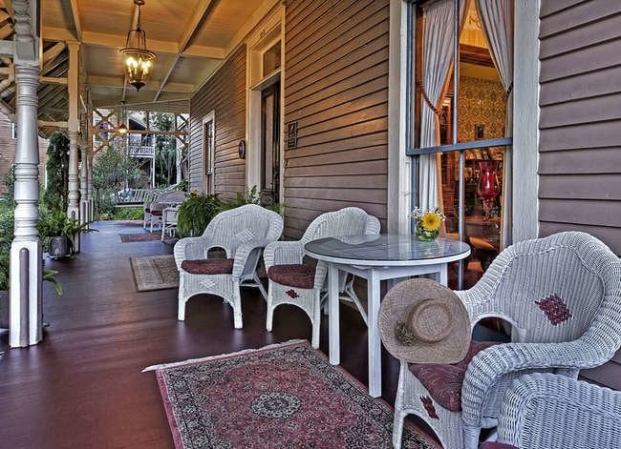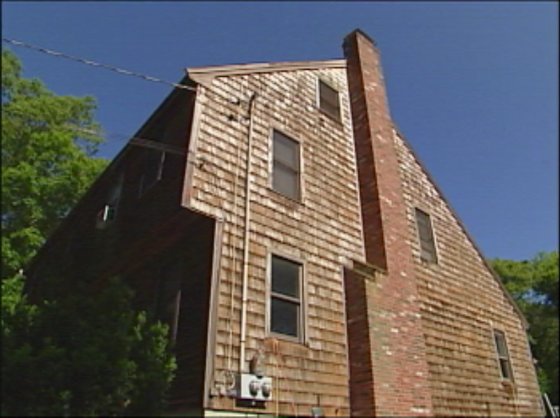We may earn revenue from the products available on this page and participate in affiliate programs. Learn More ›
The Worst of the Worst
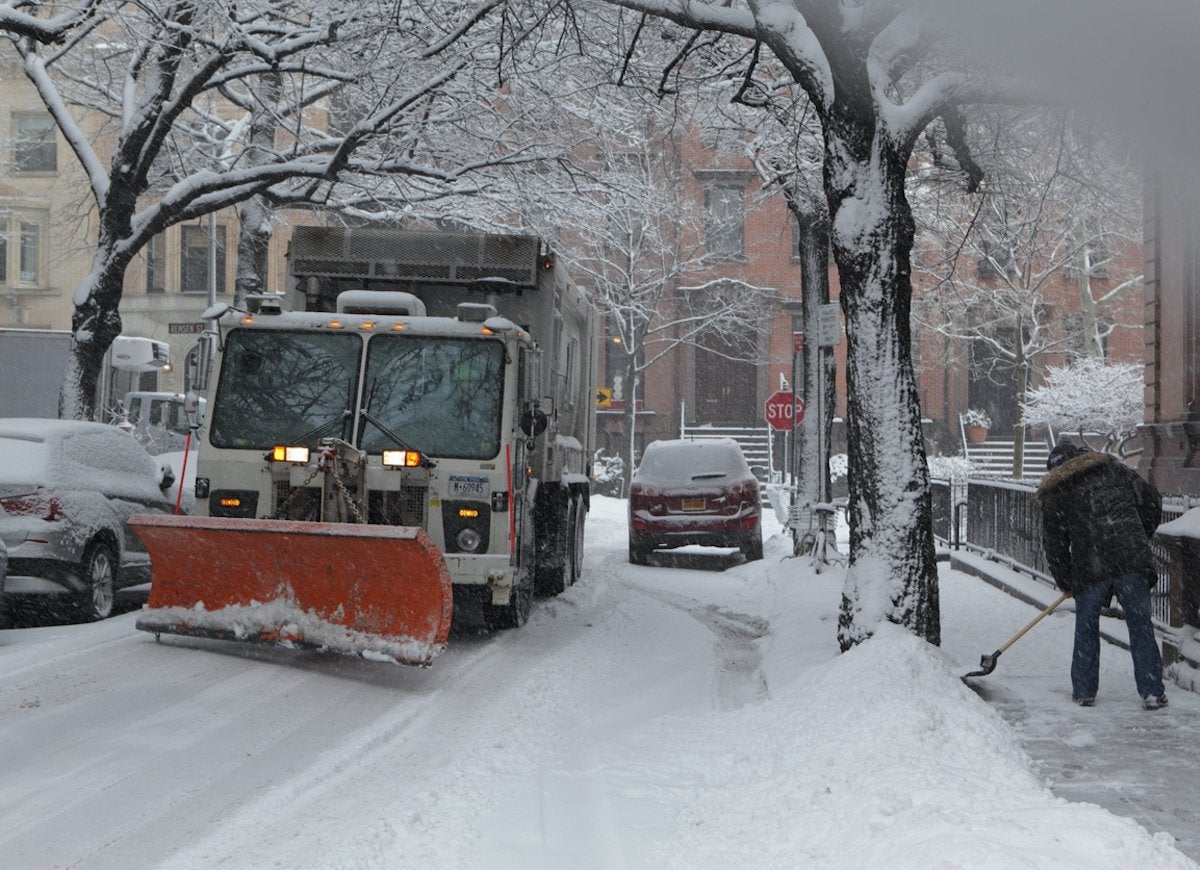
A white winter or sunny summer seem ideal, but too much of one thing is never good. While you can easily predict the climate based on the region, certain spots seem to experience more drastic conditions than other places. With data from the National Oceanic and Atmospheric Administration (NOAA), World Meteorological Organization (WMO), and the Weather Channel, we determined the cities with the worst weather in America. From steady snowfall to scorching temperatures, these US spots experience the most extreme weather.
Marquette, Michigan
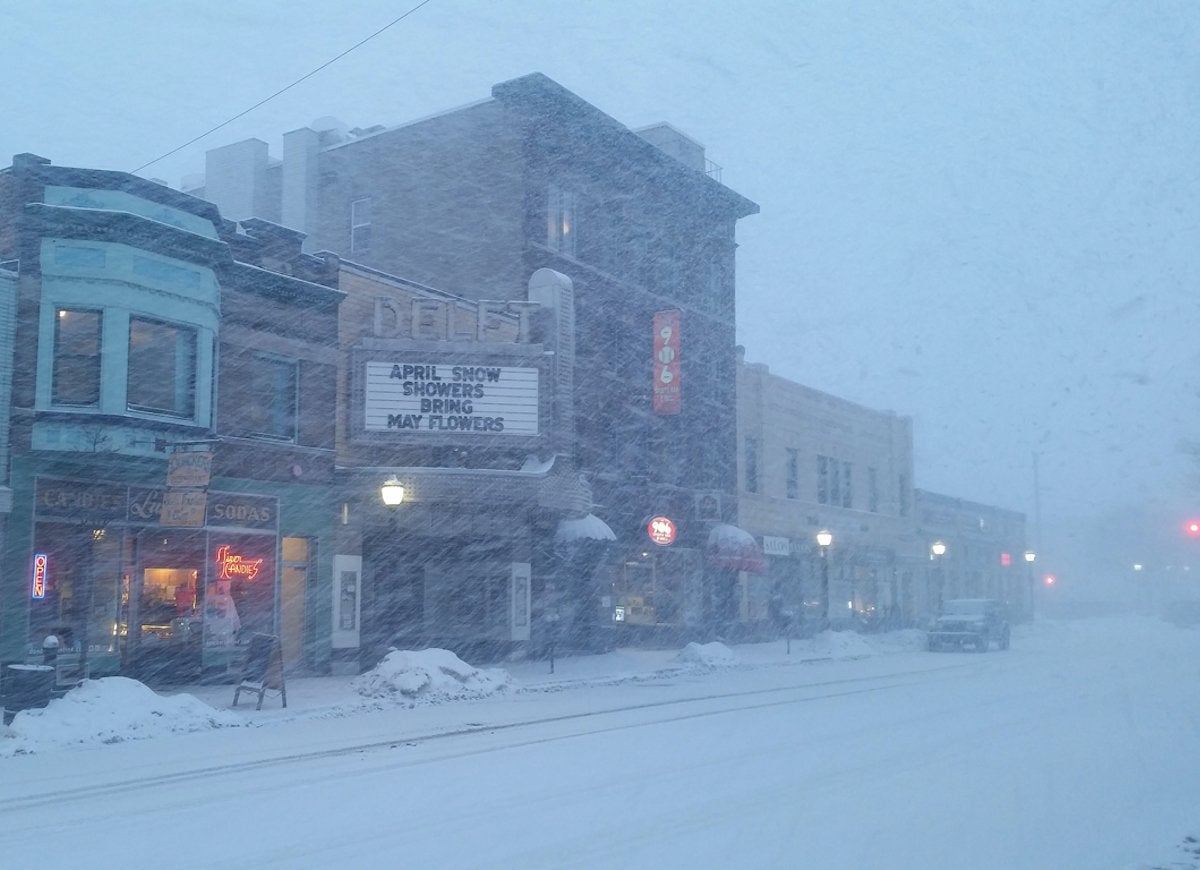
Residents of this college town in Michigan’s Upper Peninsula get walloped by an average of 204 inches of the white stuff every year, according to The Weather Channel. This abundance is due to a phenomenon called lake-effect snow that produces cooler temperatures along the shores of the Great Lakes.
Ironwood, Michigan
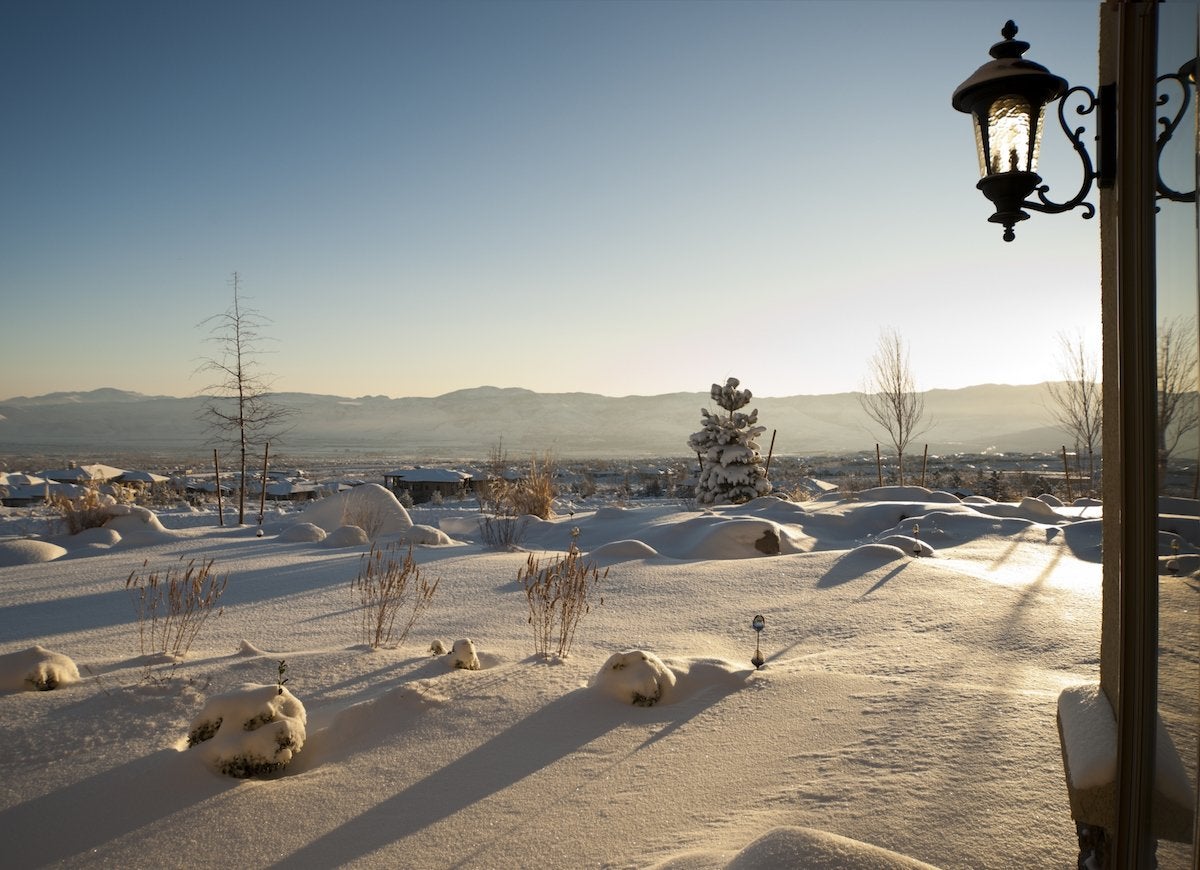
When it comes to annual snowfall, few cities can compete with Ironwood. The town’s average annual snowfall of 188 inches means residents must be prepared to salt and shovel their driveways all winter long.
Syracuse, New York
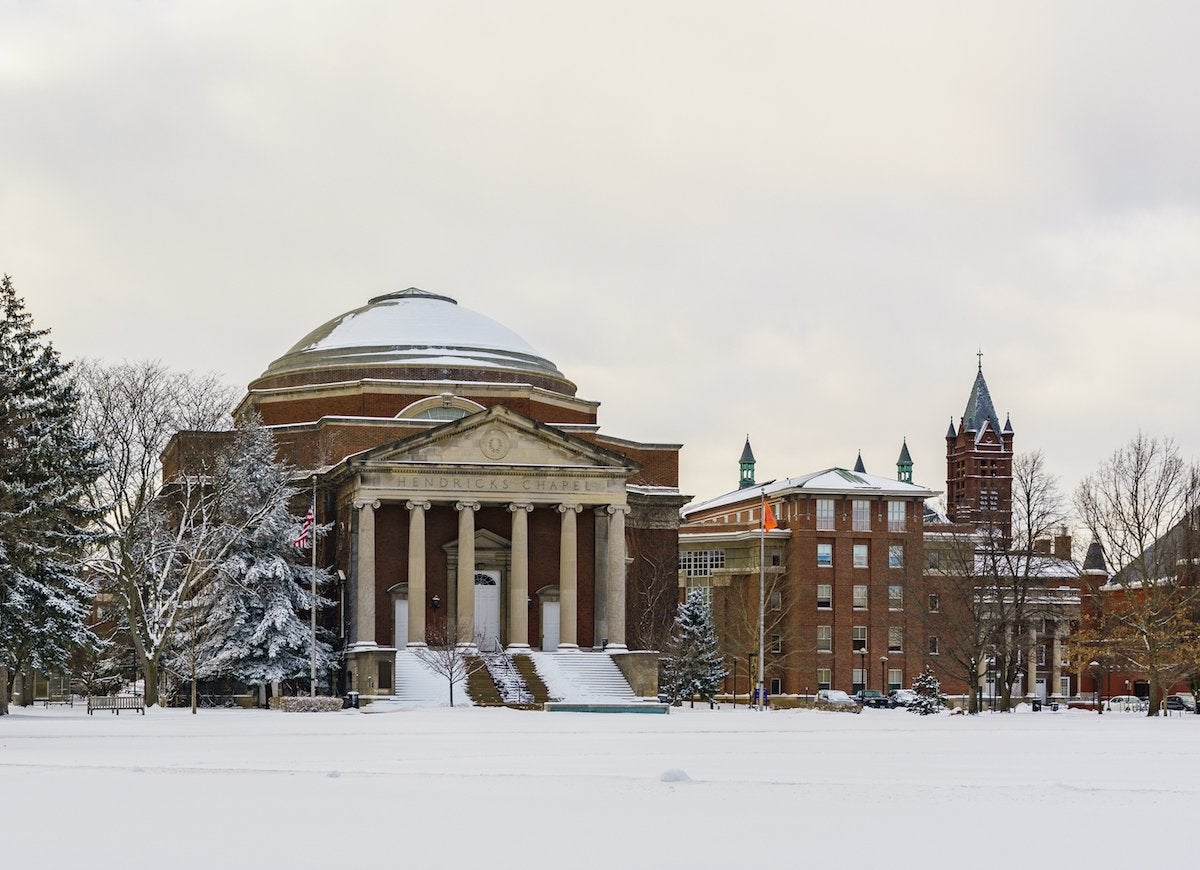
The people of this city in Central New York are no strangers to the cold. Temperatures dip below 0 degrees several times during the year. But it’s the average annual snowfall—128 inches, according to the Weather Channel—that earns this frightfully cold town a spot on this list.
Barrow, Alaska
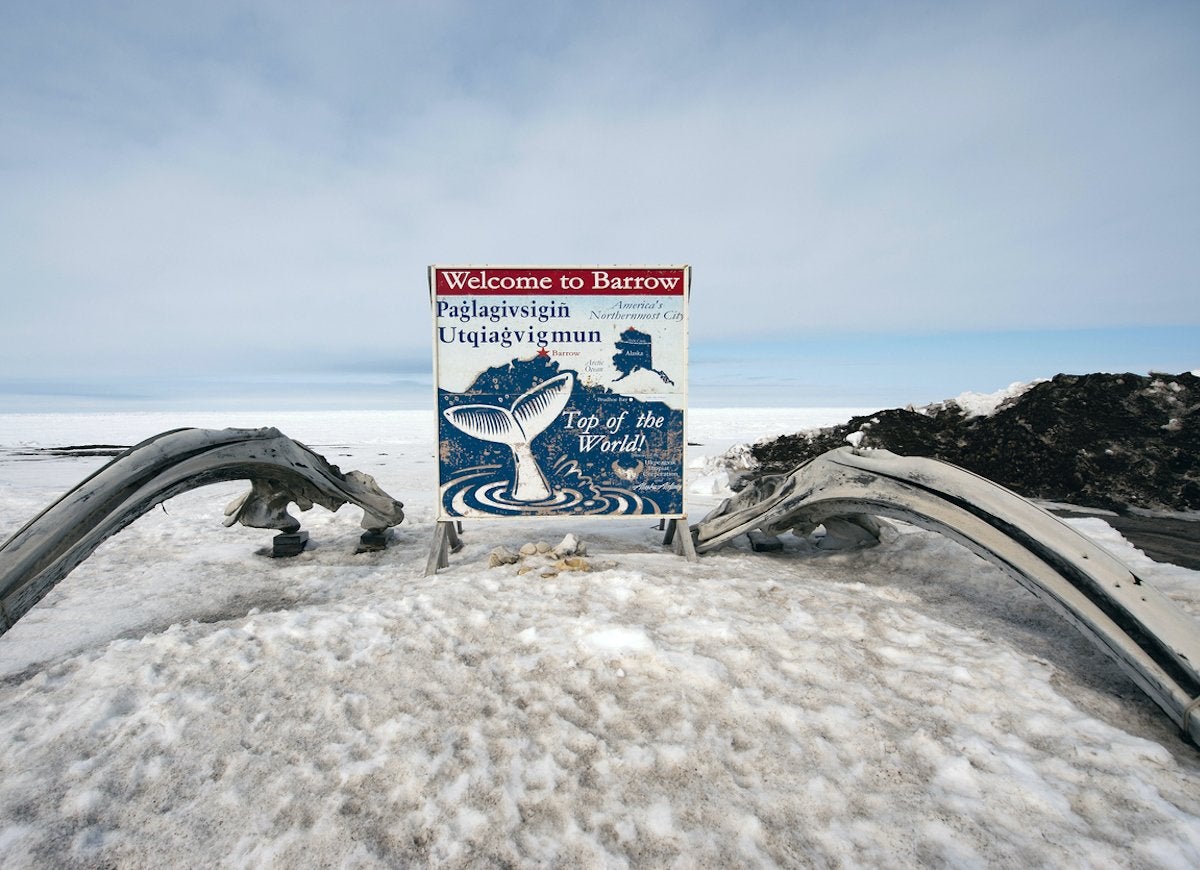
flickr.com via Johannes Zielcke
If you’re planning to spend a winter in the northernmost city in the United States, you’ll need to pack for below-zero temperatures. Barrow’s average high temperature during the first three months of the year hovers around -7 degrees Fahrenheit, with an average low of -20 degrees, according to the site U.S. Climate Data. The city’s extreme cold can be attributed both to its location 1,300 miles south of the North Pole and its position atop a 1,300-foot layer of permafrost.
Fairbanks, Alaska
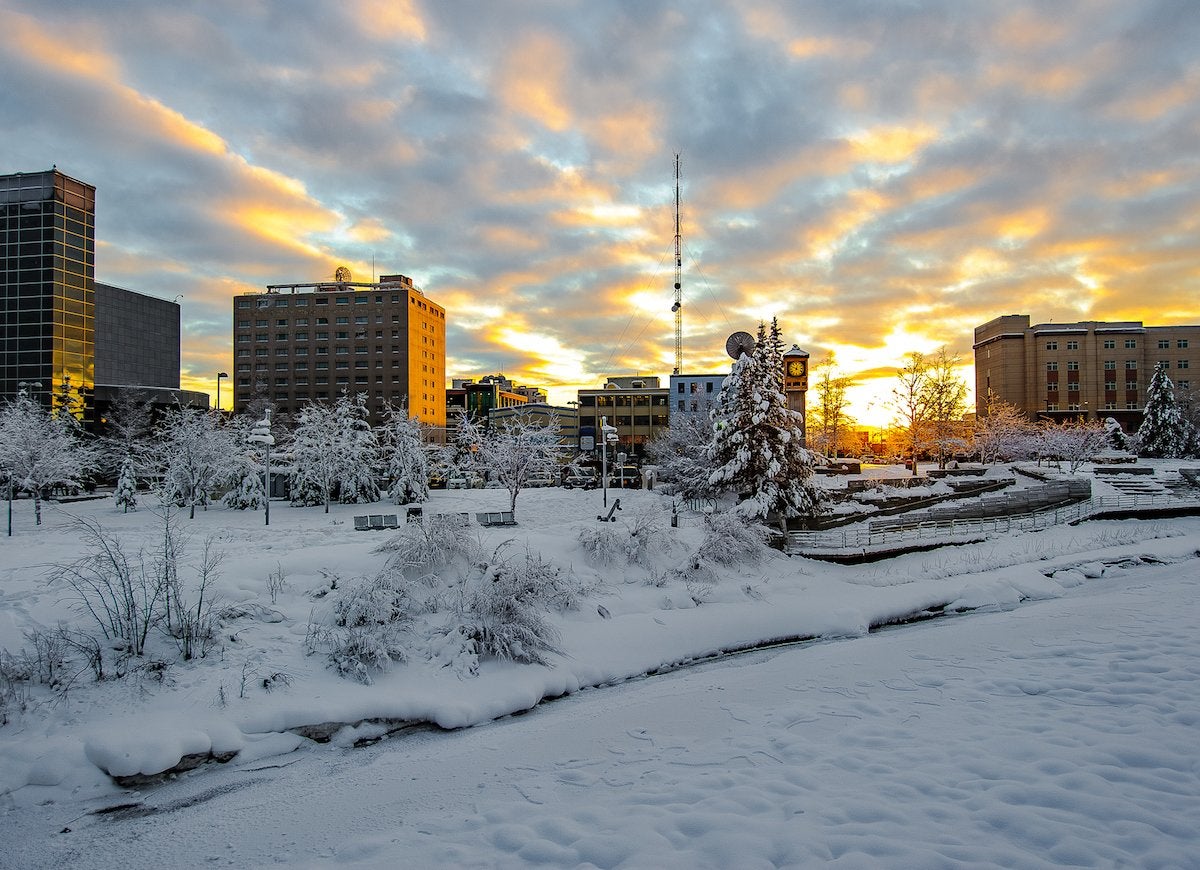
Its below-freezing winters, which the Weather Channel ranks among the coldest in the country, aren’t the only reason that Fairbanks makes our list. The American Lung Association cited Fairbanks, the largest city in Alaska’s interior, as the fifth most polluted city in its “State of the Air 2017” report, based on the levels of short-term particle pollution in the air and the number of residents diagnosed with respiratory diseases.
Caribou, Maine
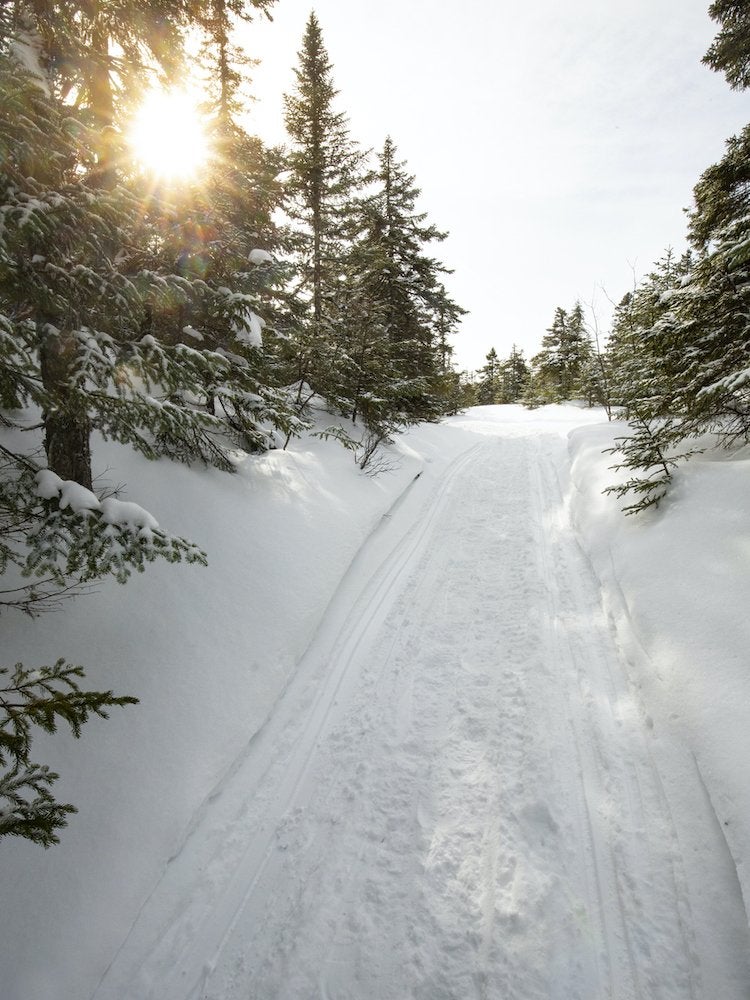
Touted as “The Most Northeastern City in the United States” on its own website, Caribou has some of the coldest weather in the region, “enjoying” an average of 41 days of sub-zero temperatures annually, according to The Weather Channel.
Fargo, North Dakota
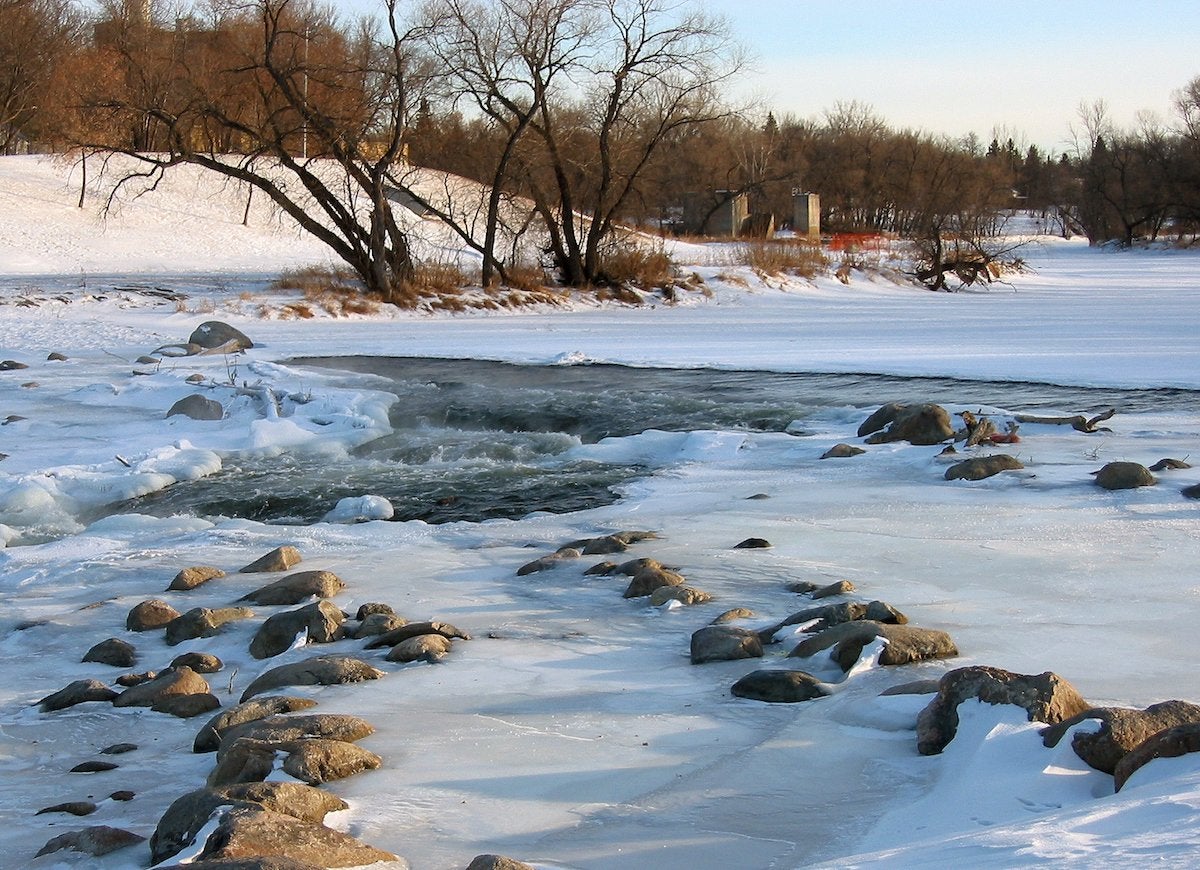
Long before the eponymous film hit theaters, Fargo had earned a reputation for having some of the worst winter weather in the Midwest. Residents battle the elements even after the coldest months have passed, when snowmelt causes flooding of local waterways.
Erie, Pennsylvania
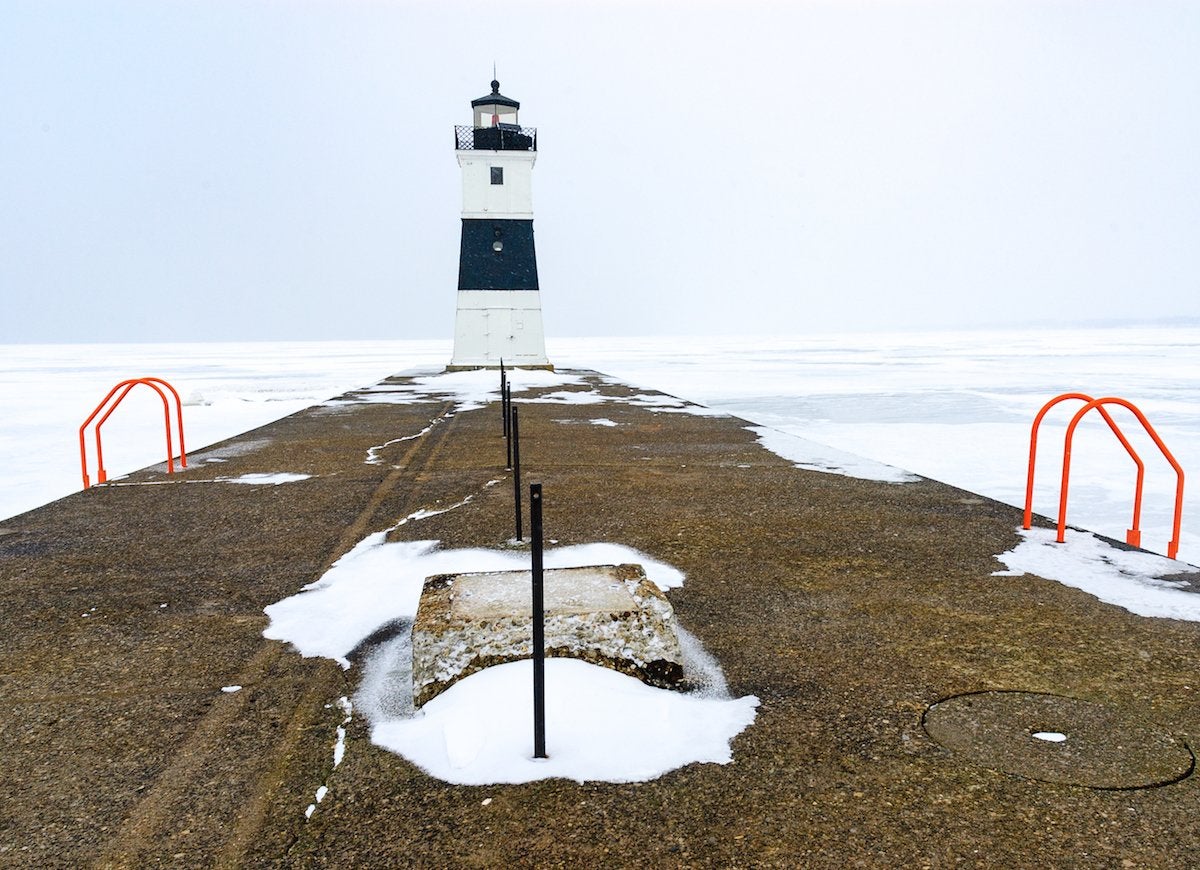
An annual average snowfall of 102 inches, according to the website U.S. Climate Data, makes this majestic city one of the snowiest in the country.
Flagstaff, Arizona
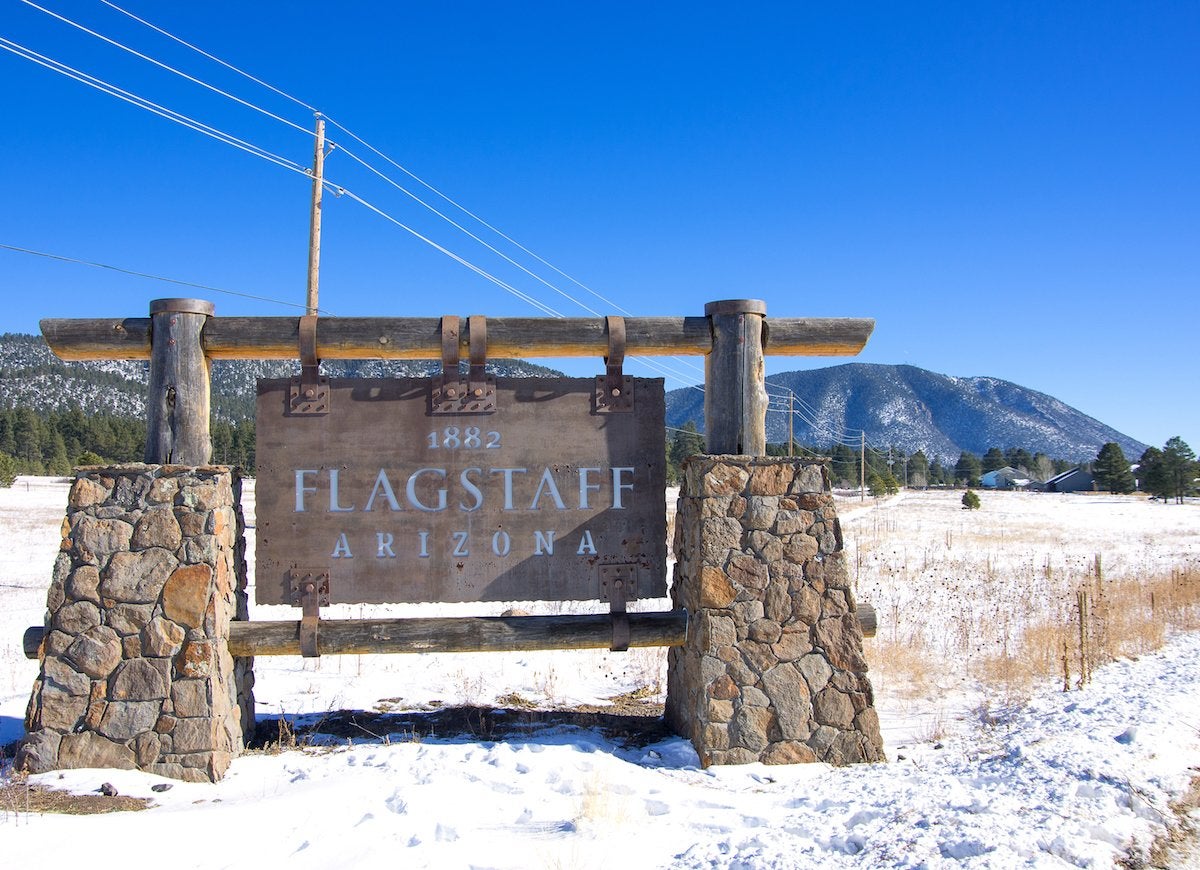
Who said the north and northeast had the market cornered on brutal winter weather? Flagstaff receives an average of 77 inches of snow yearly, according to the site U.S. Climate Data, and this high desert city’s January lows average 11 degrees Fahrenheit.
Grand Forks, North Dakota
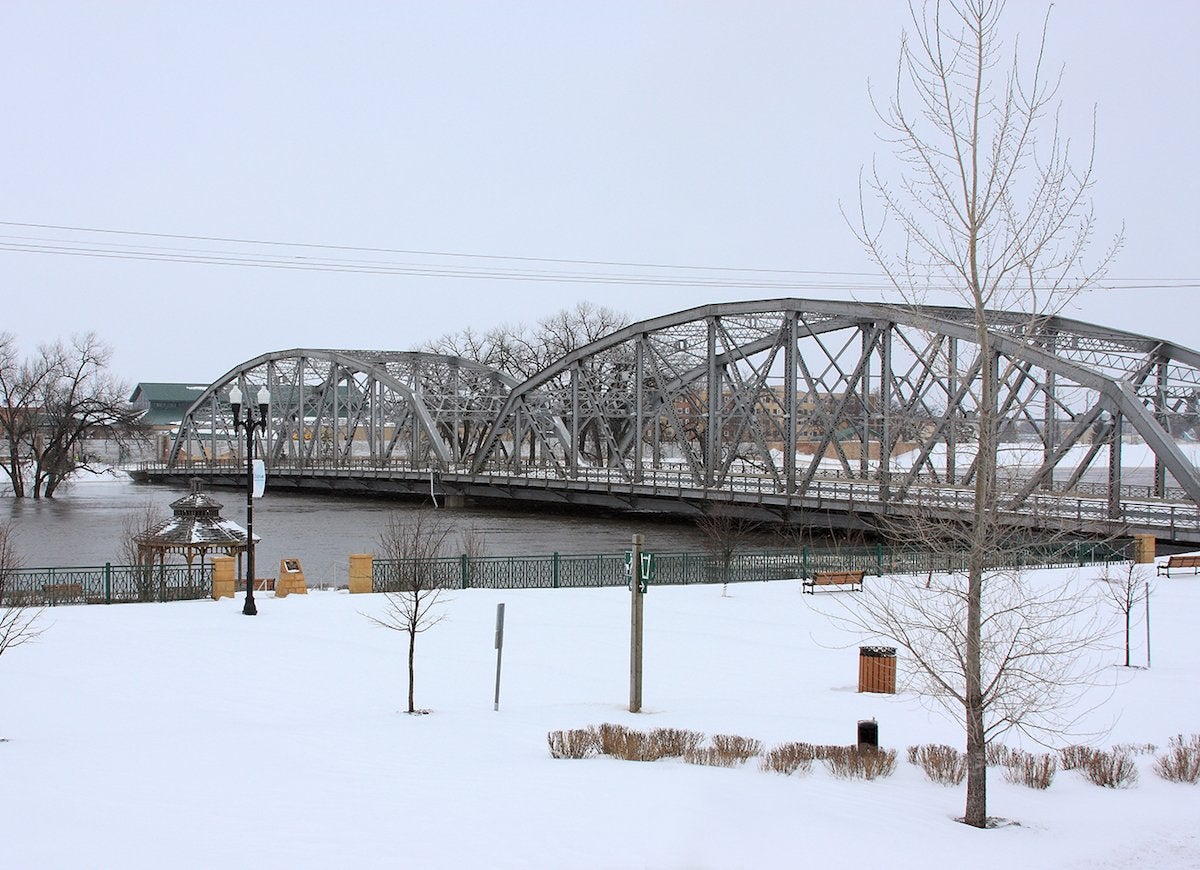
flickr.com via Wes Peck
The average winter low temperature in Grand Forks is a finger-numbing -3 degrees Fahrenheit, according to NOAA data collected over a 30-year period, making this town on the Canadian border one of the coldest in the Lower 48.
Tucson, Arizona
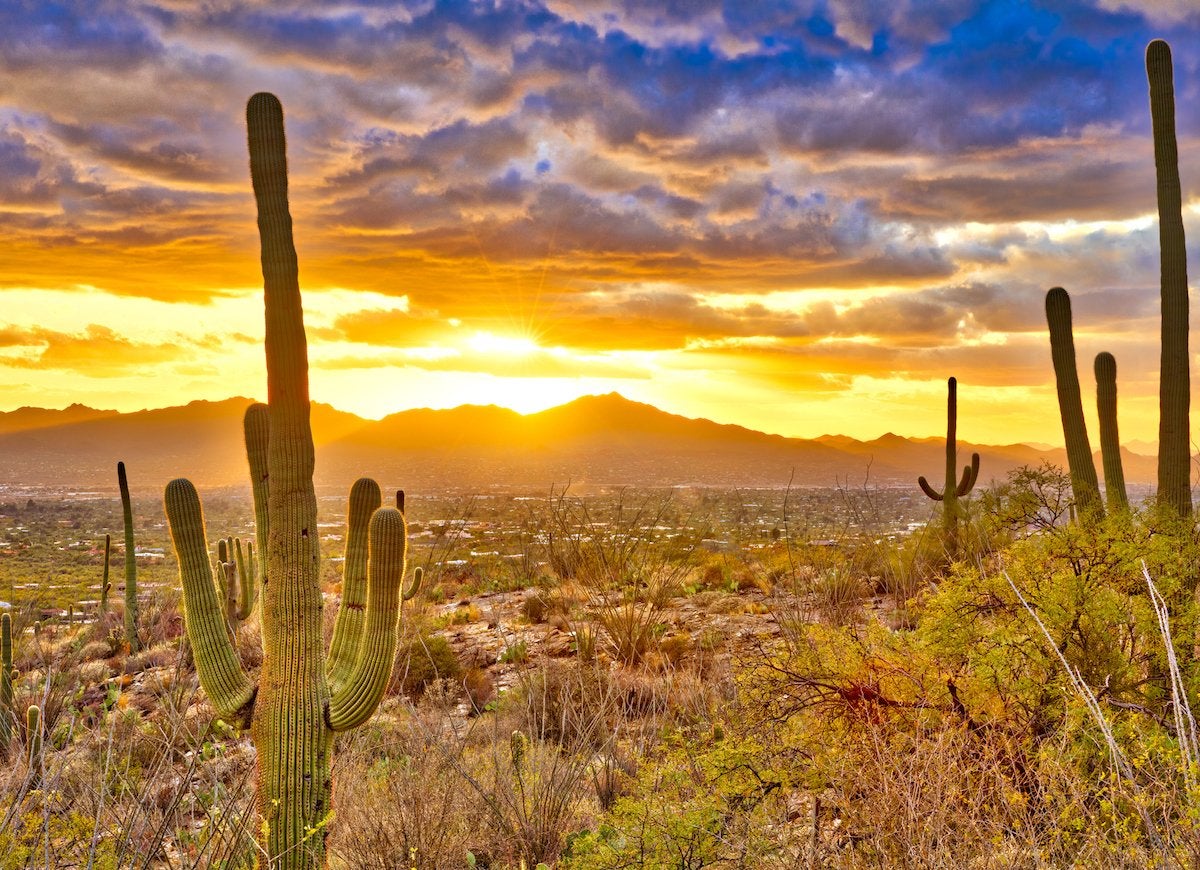
Residents of Tucson experienced the third-hottest day on record in U.S. history when temperatures hit 117 degrees Fahrenheit in June 1990. With an annual average of 146 days that top 90+ degrees Fahrenheit, according to climatic data from NOAA, Tucson has no shortage of scorching weather.
Phoenix, Arizona
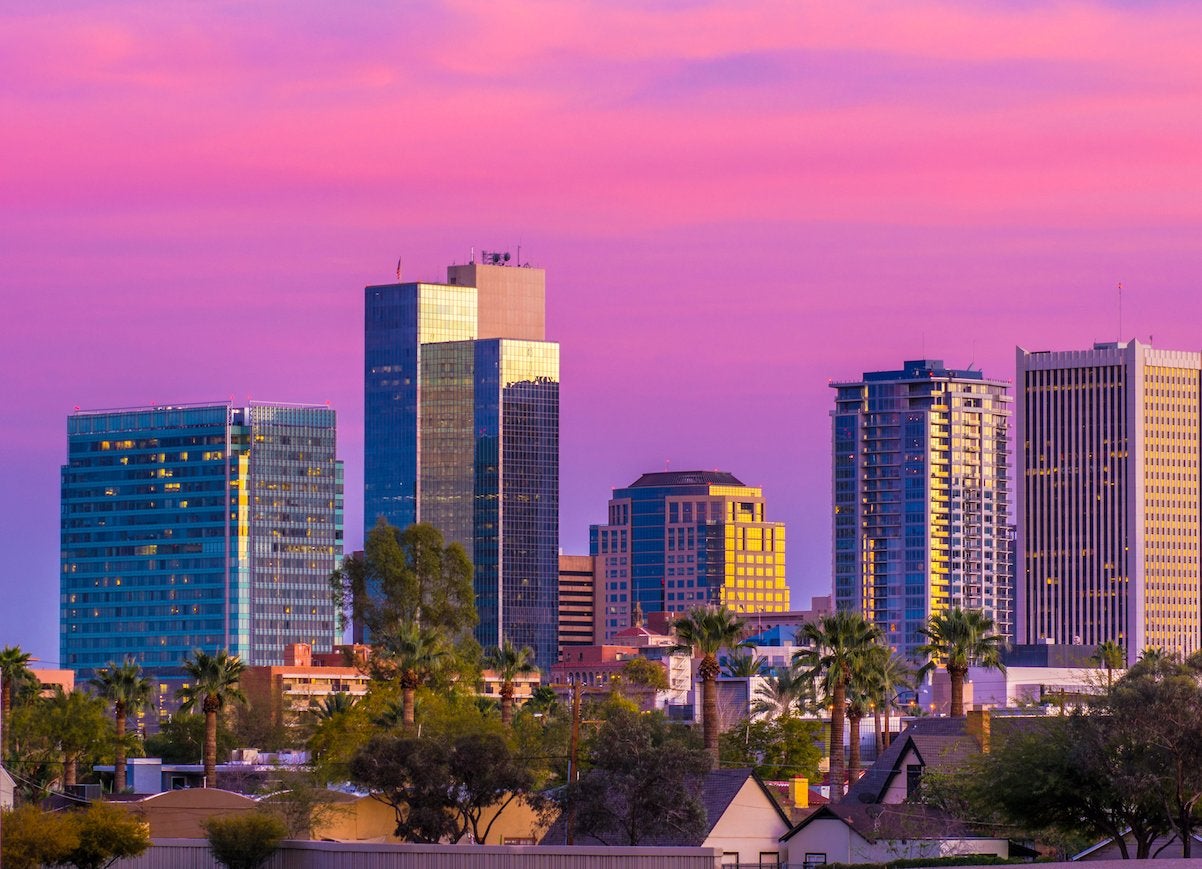
Phoenix temperatures frequently top those of Tucson, which makes it one of the hottest cities in the United States, with average high temperatures hovering between 104 and 106 degrees Fahrenheit in summer, according to NOAA.
Las Vegas, Nevada
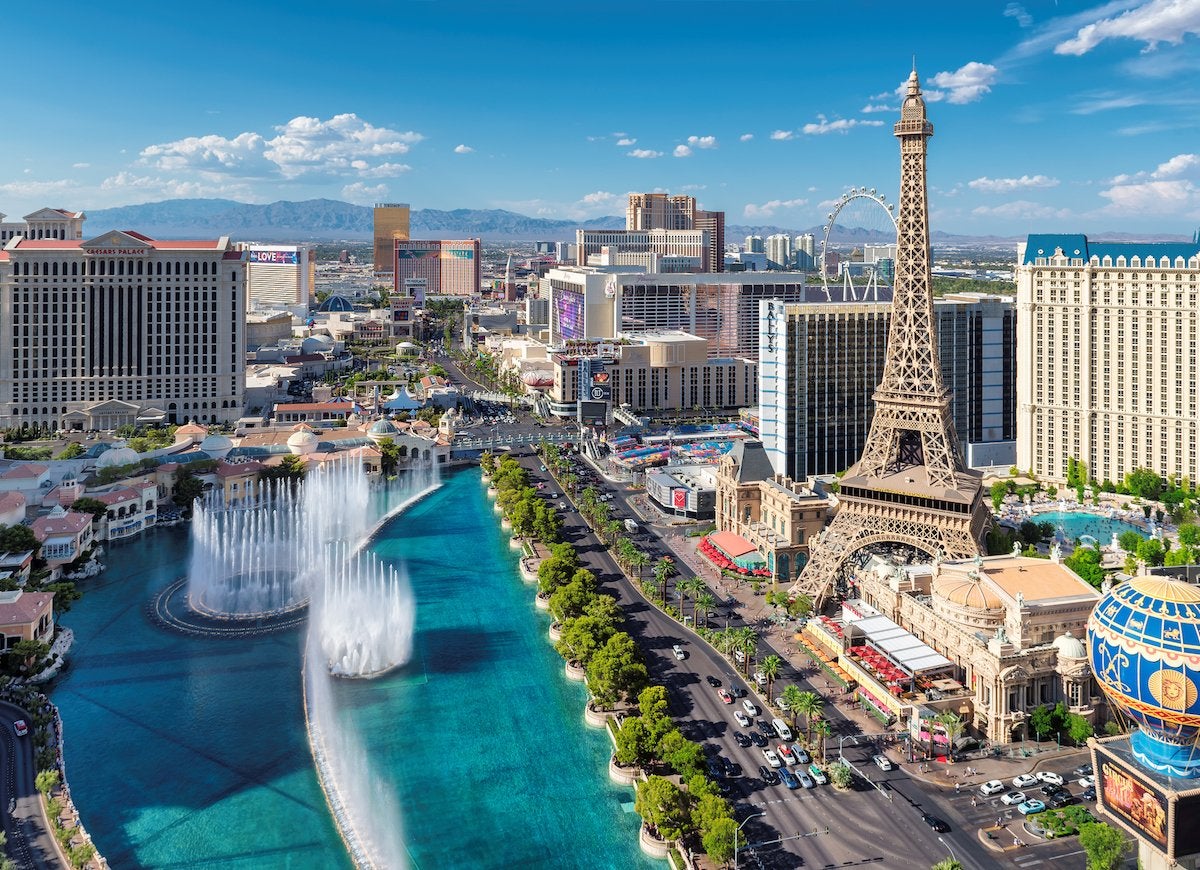
Vegas has become an entertainment destination in recent years in spite of its extreme weather. In fact, temperatures in Sin City exceed 90 degrees Fahrenheit for an average of 135 days out of the year—the third most of any American city.
Bullhead City, Arizona
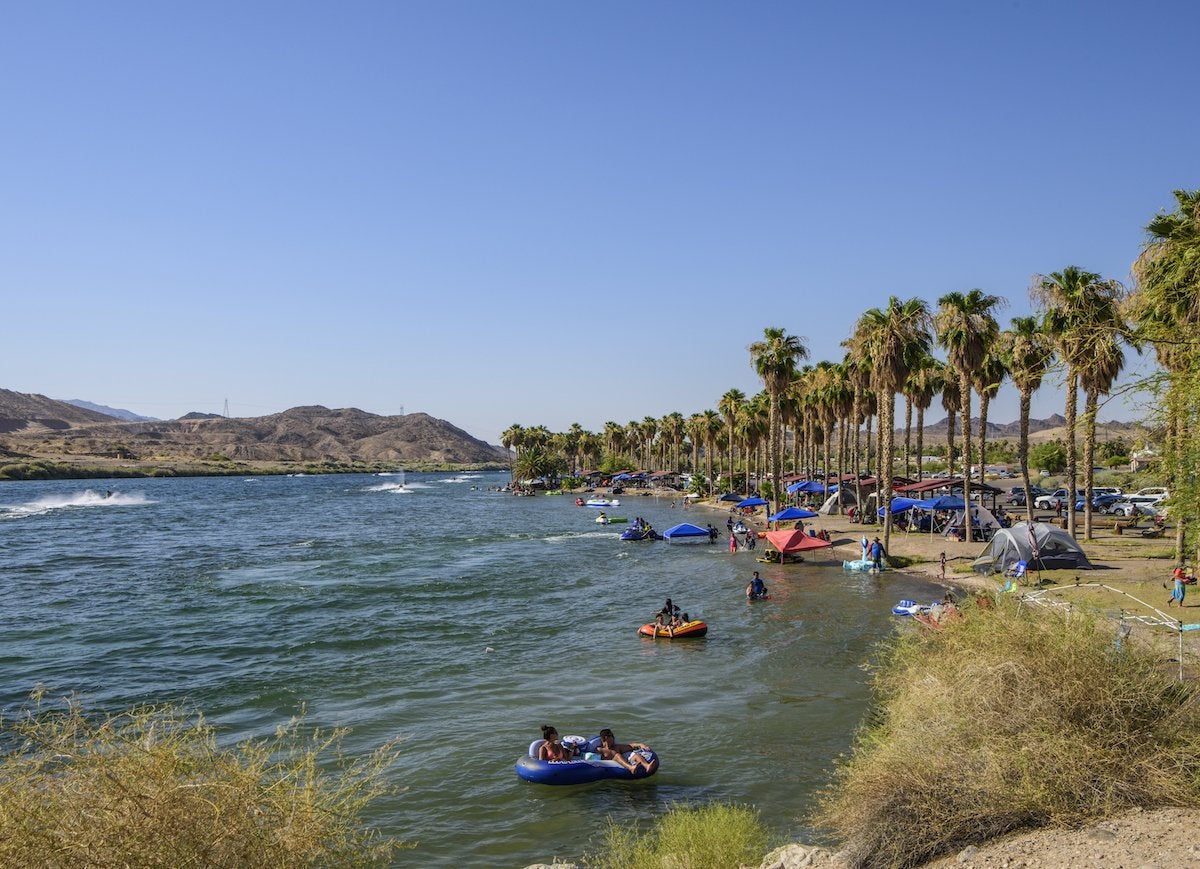
Located about 100 miles south of Las Vegas, Bullhead City is almost as hot as its northern neighbor. It gets an average of 129 99-degree days annually, according to NOAA, and reported a 126-degree day in June 2017.
Del Rio, Texas
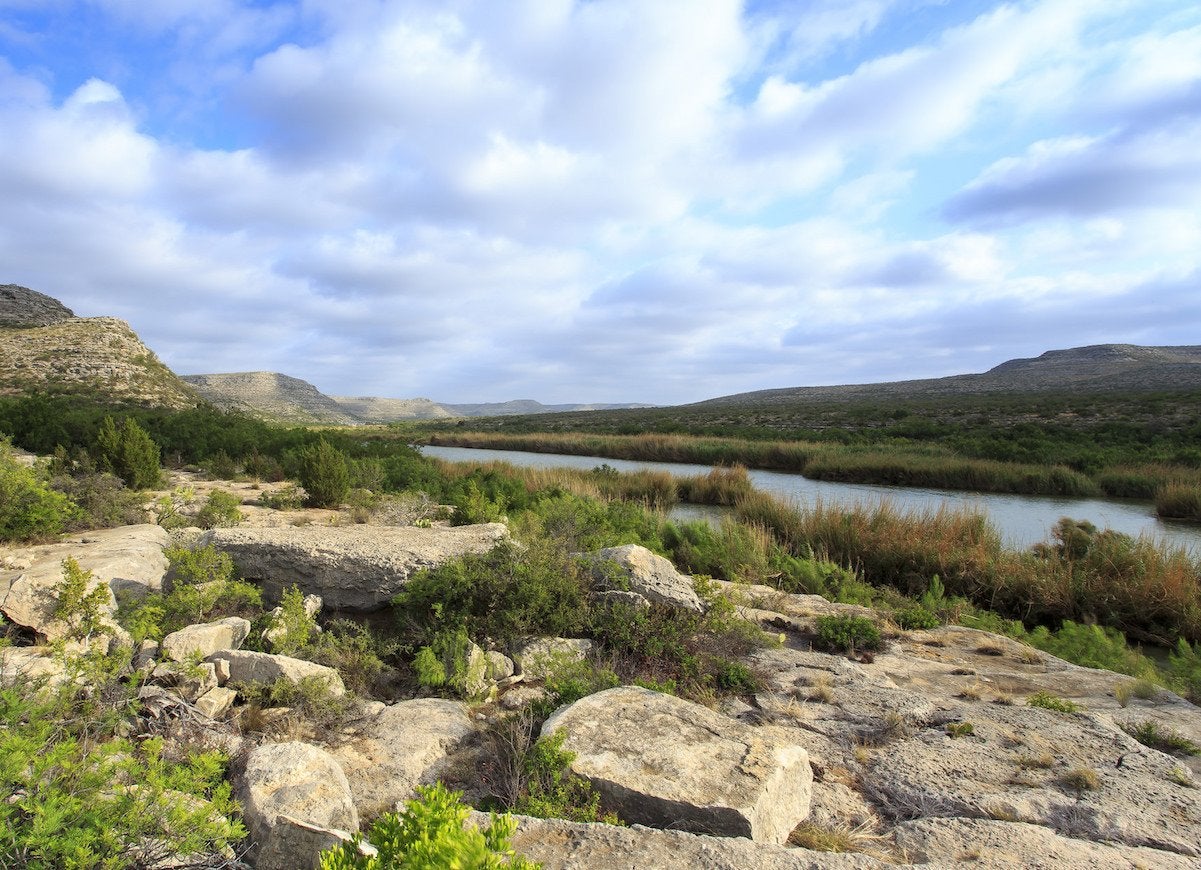
flickr.com via Daniel Rodriguez
The average August high temperature of 97.1 degrees Fahrenheit in this border city, the hottest in Texas, is surpassed by only three other cities in the country, according to NOAA.
Brownsville, Texas
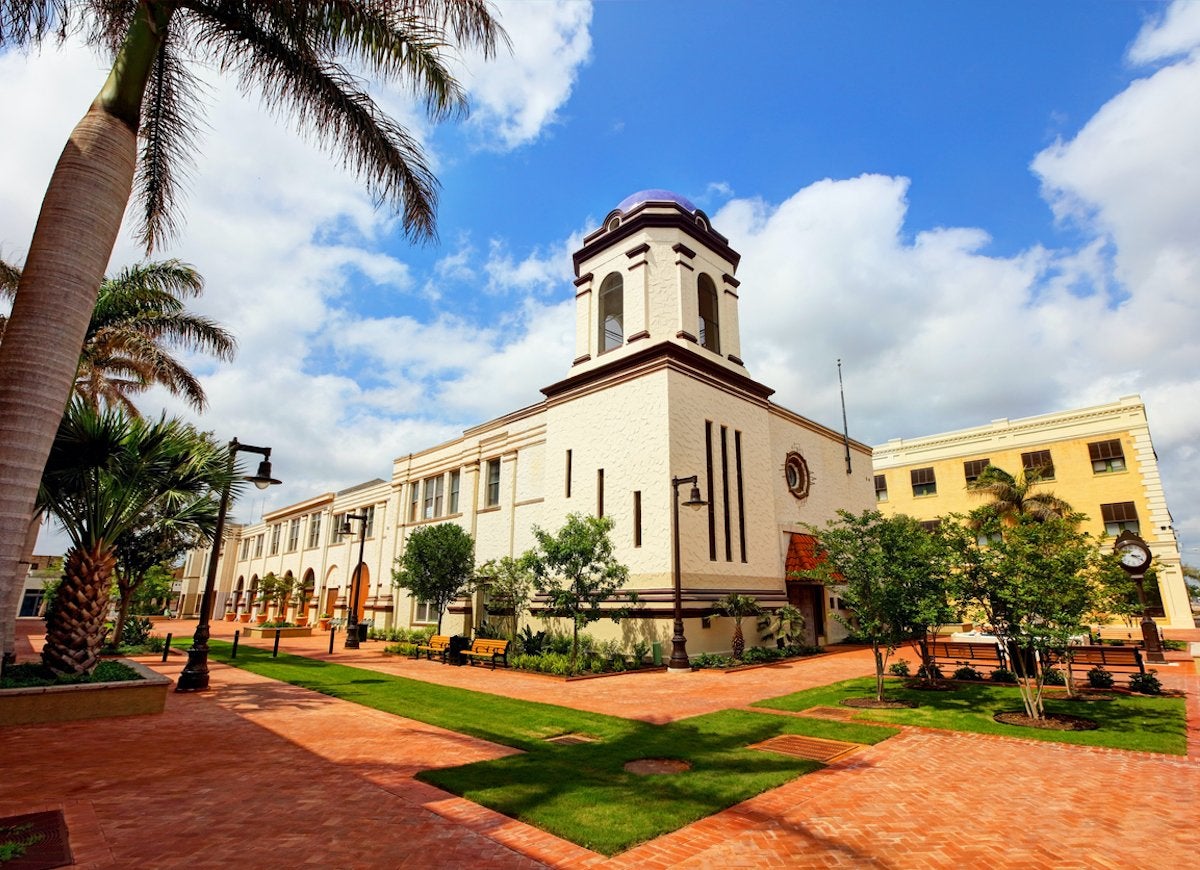
On average, temperatures hit at least 90 degrees on 133 days a year in this city on the southern tip of Texas, according to The Weather Channel. Temperatures don’t soar only in the summertime—Brownsville’s hottest day on record was March 27, 1984, when the high hit 106 degrees Fahrenheit.
Lake Havasu City, Arizona
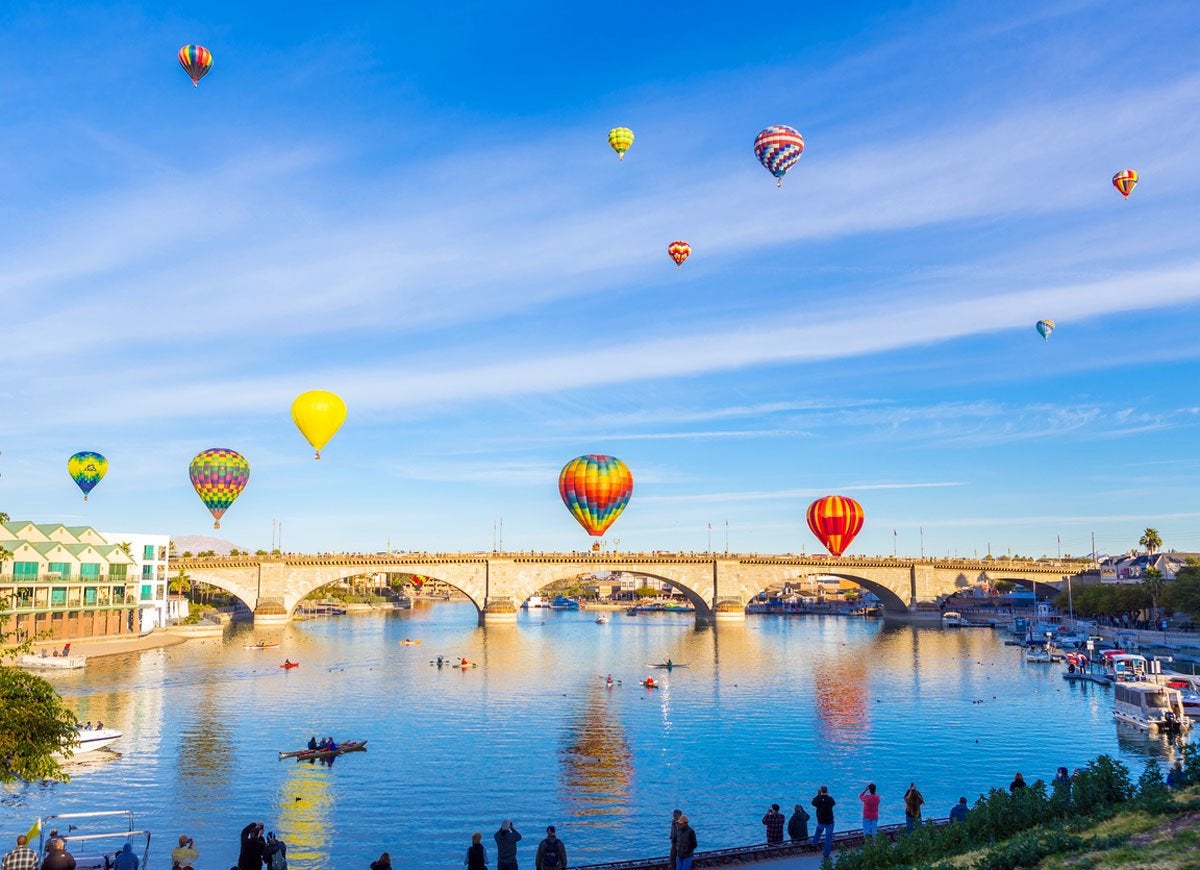
One-hundred-degree days are not uncommon in this 50,000-person Mojave County community, where average temperatures exceed 100 degrees Fahrenheit for three months out of the year, according to the site U.S. Climate Data.
Dallas, Texas
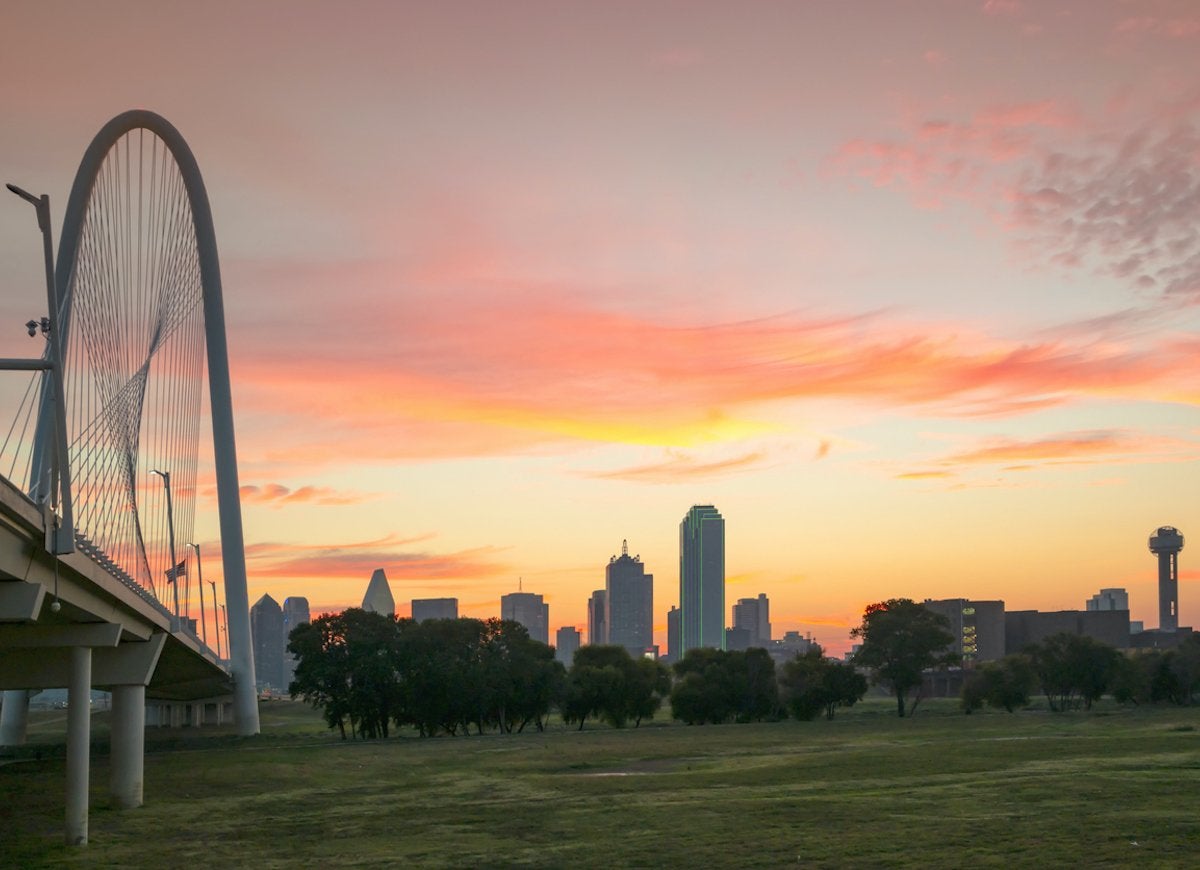
It will probably come as no surprise to residents of Dallas that their city earns a spot on this list. On average, the Texas city gets 17 days of 100+ temperatures per year, according to the NOAA.
Mobile, Alabama
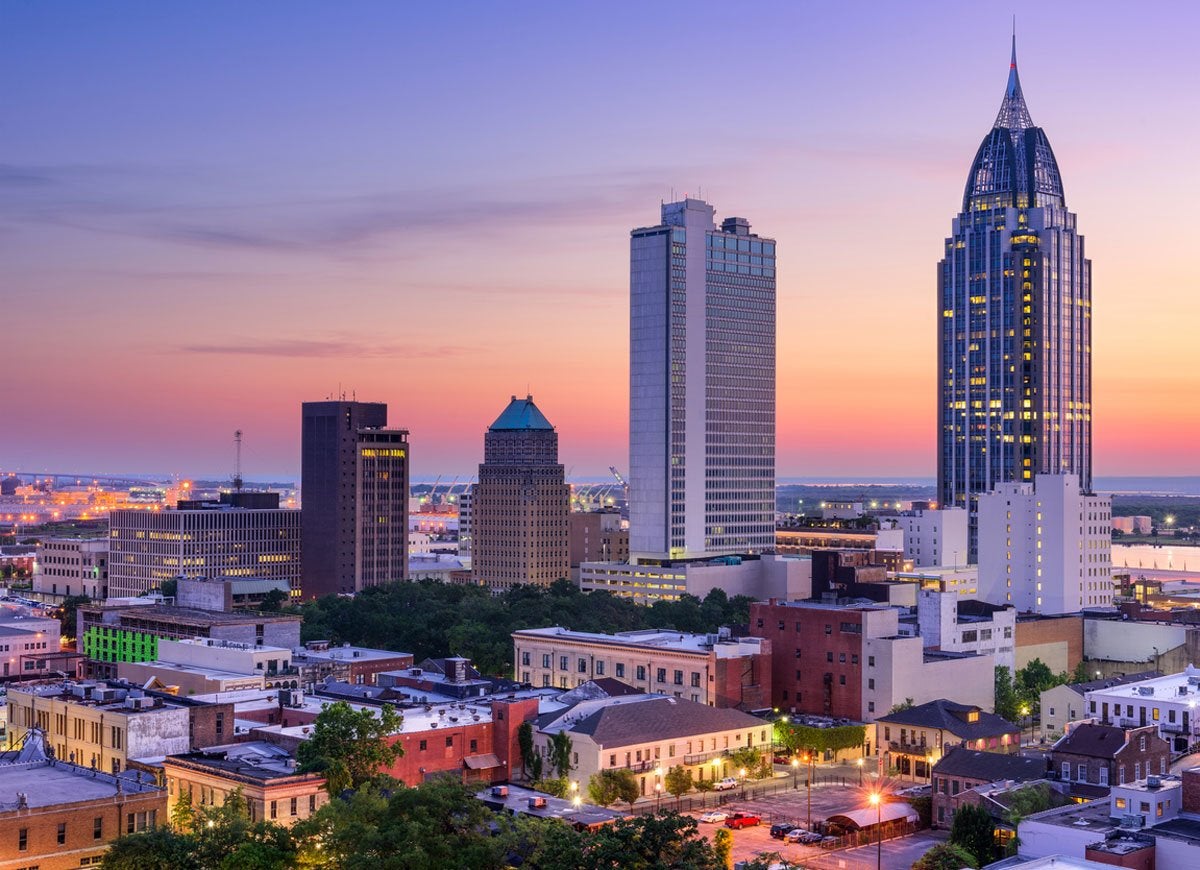
Seattle’s nickname may be “Rain City” because of its average of 147 rainy days per year, but Mobile, Alabama, receives the most rainfall, an average of 66 inches, according to the NOAA.
New Orleans, Louisiana
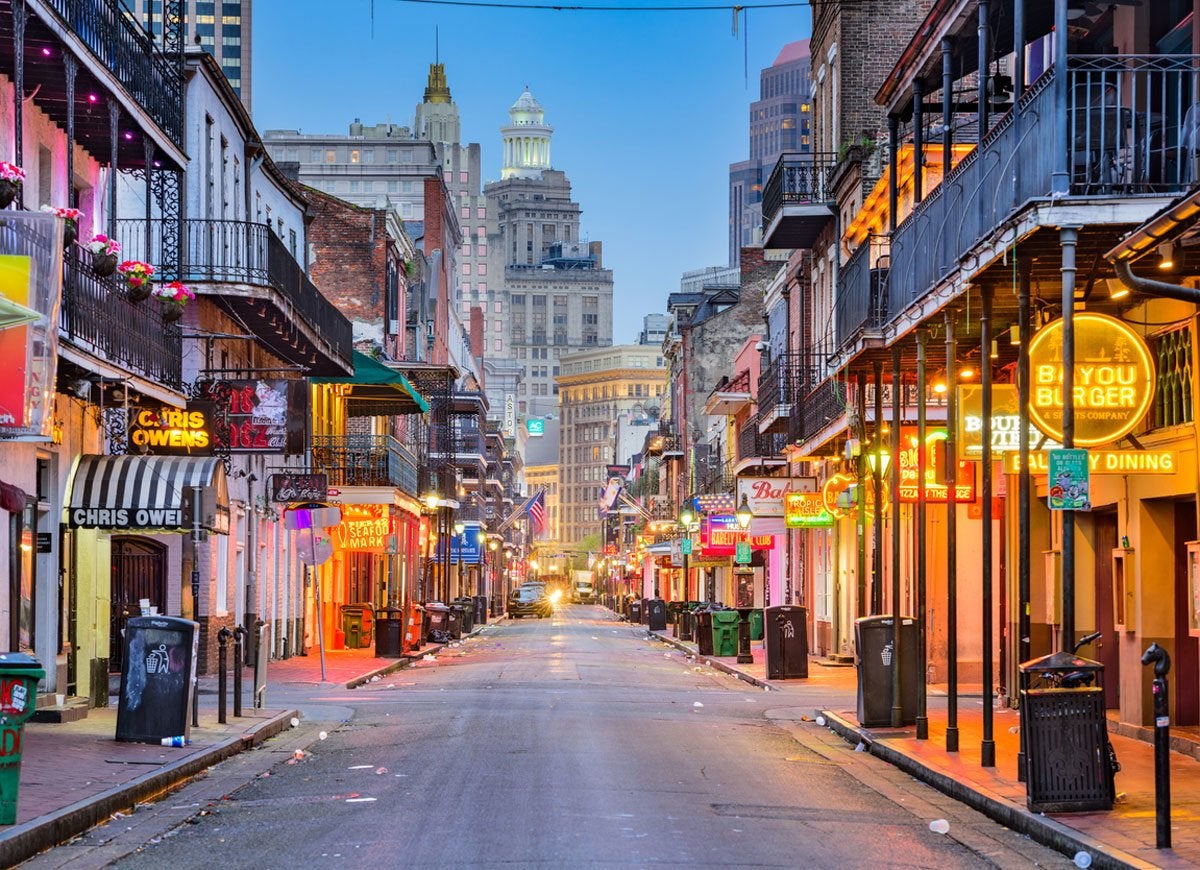
The largest city in Louisiana receives an average of 62 inches of rain per year, putting it on par with Mobile as one of the wettest cities in America. Even worse, because much of New Orleans is below sea level, the city is extremely vulnerable to flooding.
Pensacola, Florida
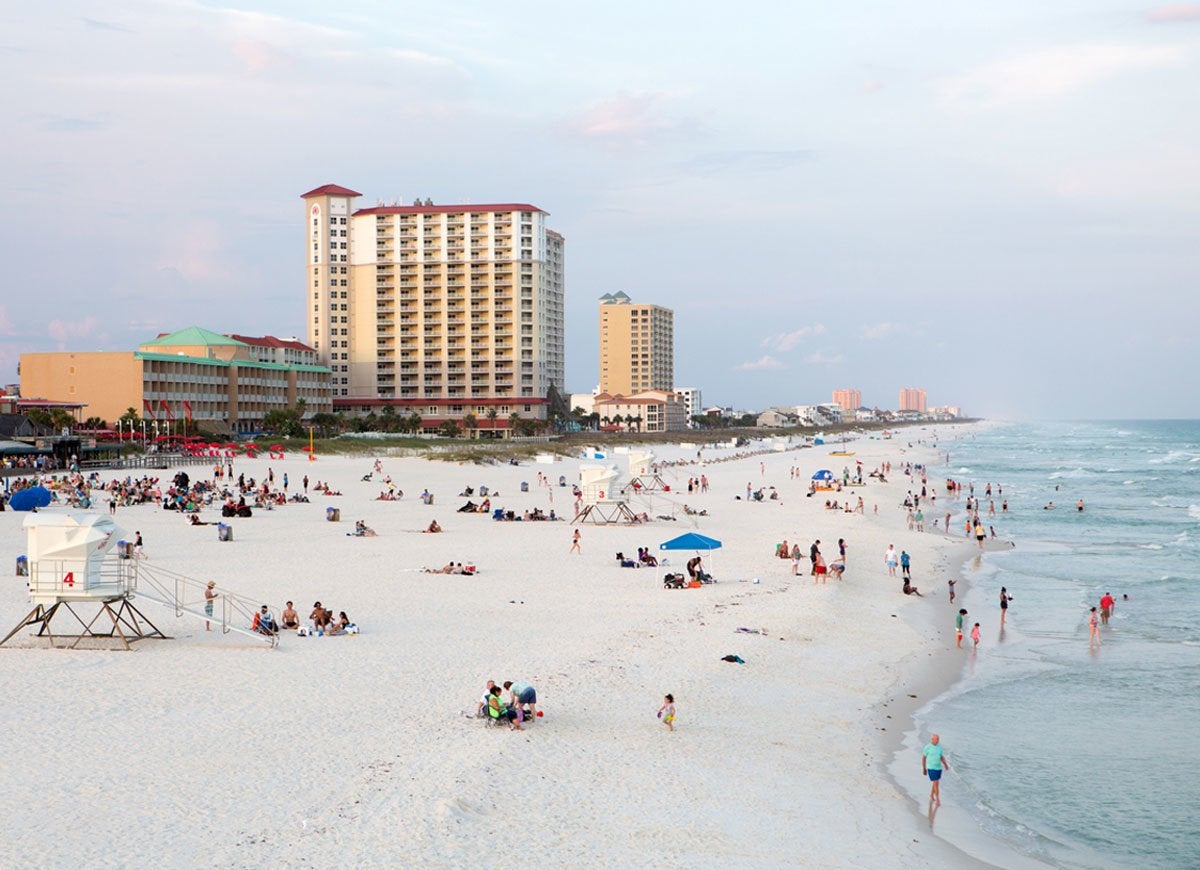
This city on Florida’s panhandle was ranked by CBS News as one of the best U.S. cities to retire to, but if you don’t want to deal with rain in your golden years, you’d be well advised to steer clear—the city receives 65 inches of rainfall annually.
Seattle, Washington
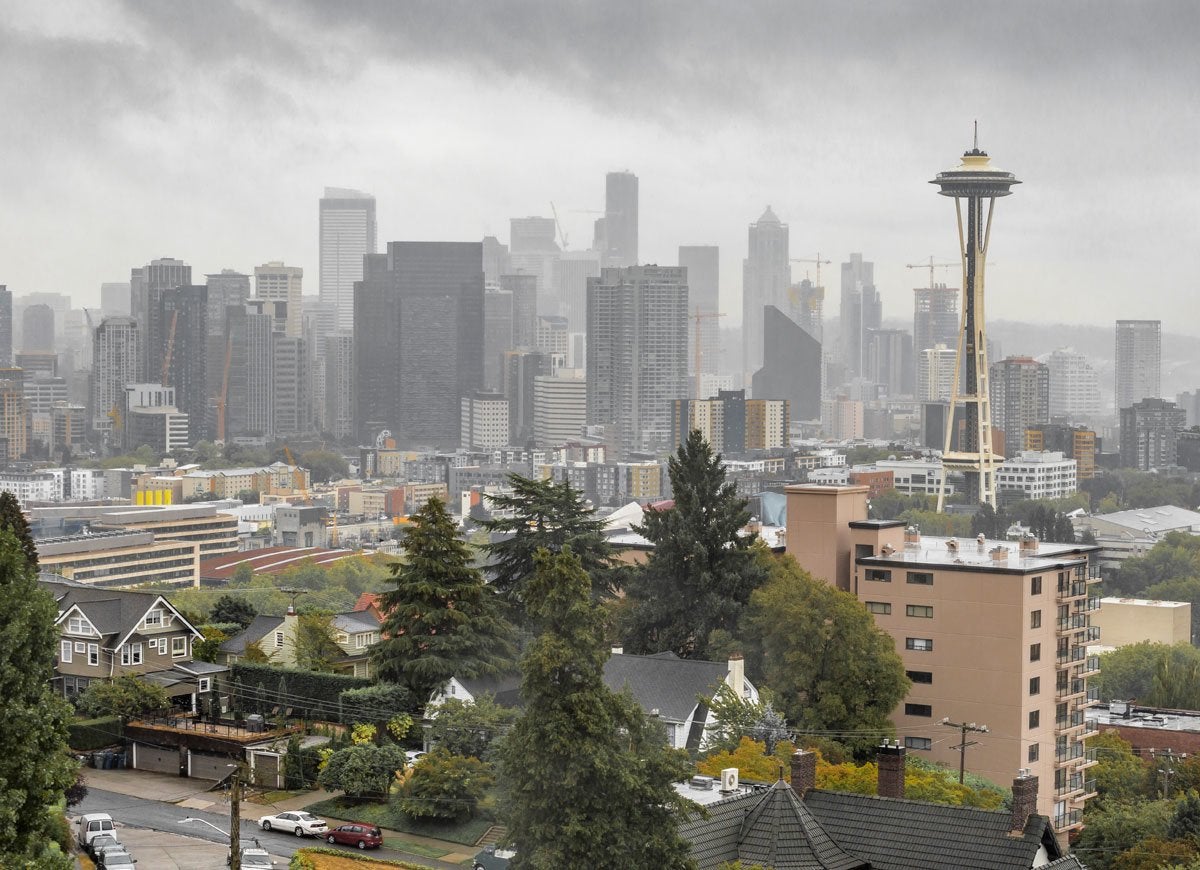
True to its nickname, “Rain City,” Seattle endures 147 rainy days per year. The rain often amounts to just a light drizzle, but the clouds are enough to obscure the sun for much of the year.
Buffalo, New York
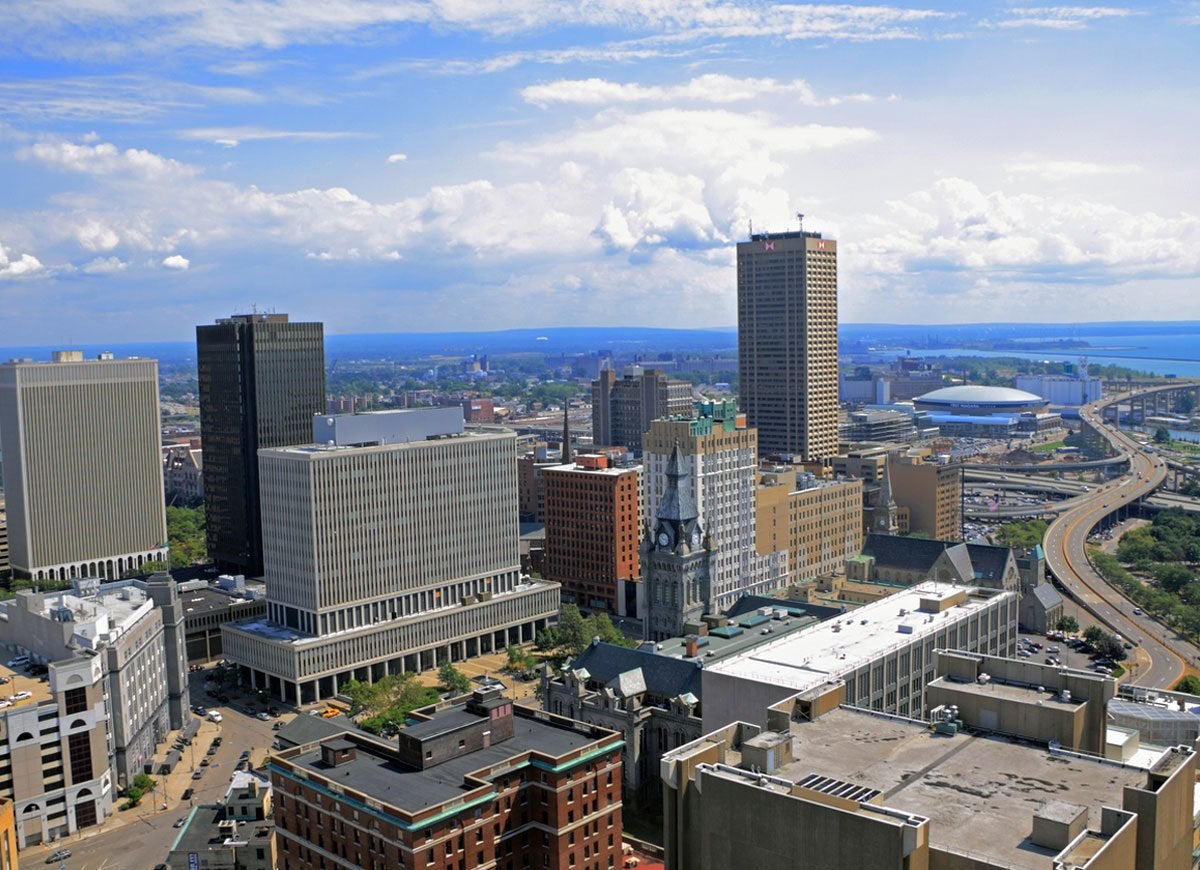
With 311 partially cloudy days per year, three more than Seattle, Buffalo often takes the title of cloudiest city in America. Given the relatively small number of sunny days, residents may want to ask their doctors about taking vitamin D supplements to stay healthy in spite of the weather.
Portland, Oregon
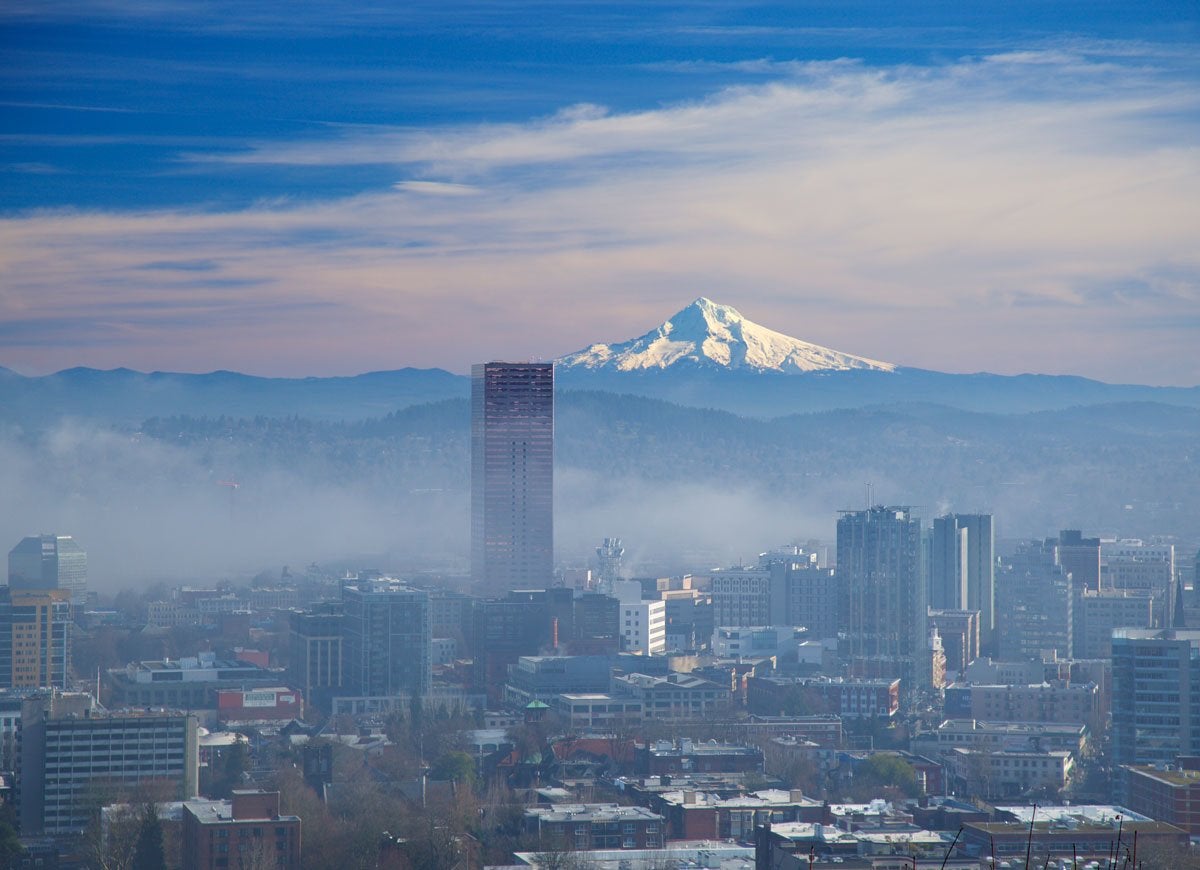
Portland sees an average of 222 heavily cloudy days per year, according to NOAA, but the port city’s horticulture doesn’t suffer for lack of sunshine. The cloudy climate is surprisingly hospitable to roses, which have earned Portland the nickname “the City of Roses.”
Tampa, Florida
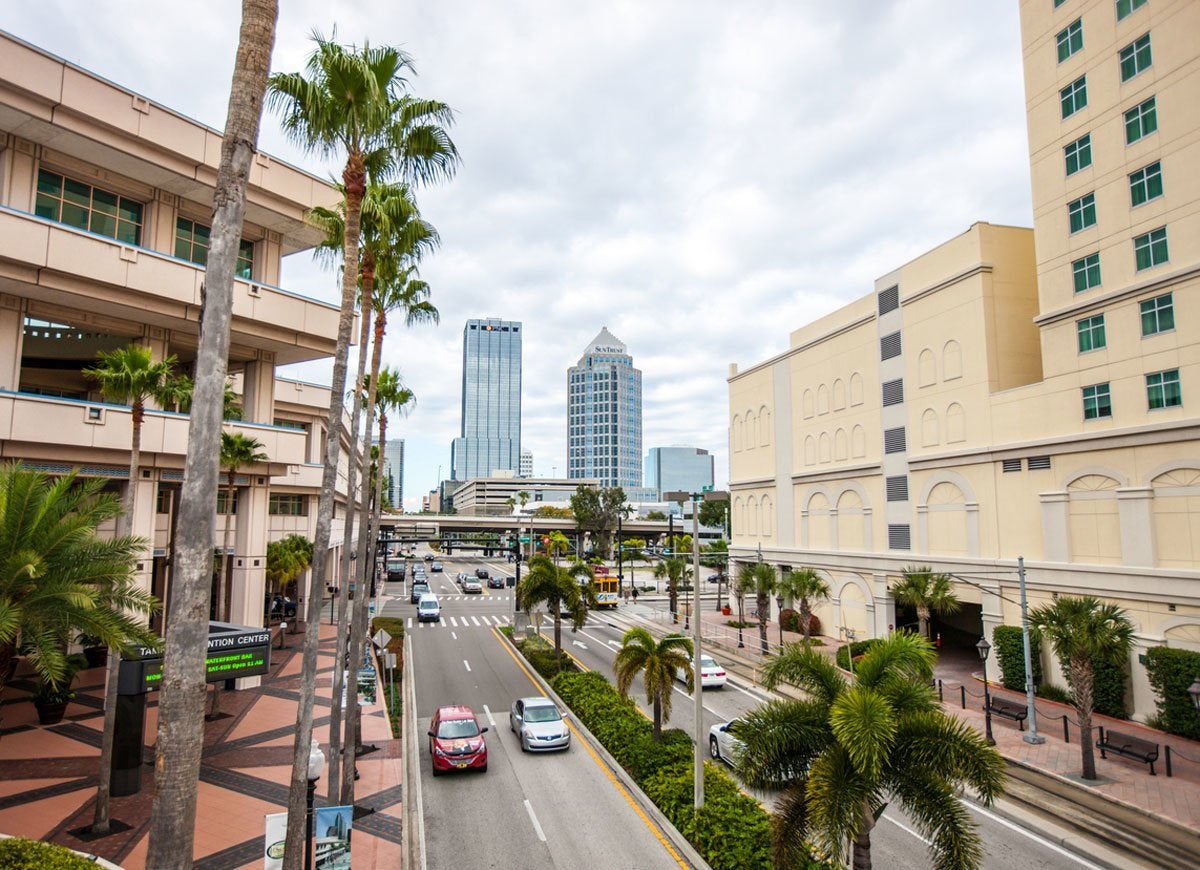
How did this city that sees an average of 246 sunny days per year wind up on our worst weather list? It has the highest number of days with thunderstorms of anywhere in the United States, according to the World Meteorological Organization. In fact, residents can expect to spot lightning on average 83 days every year.
Jacksonville, Florida
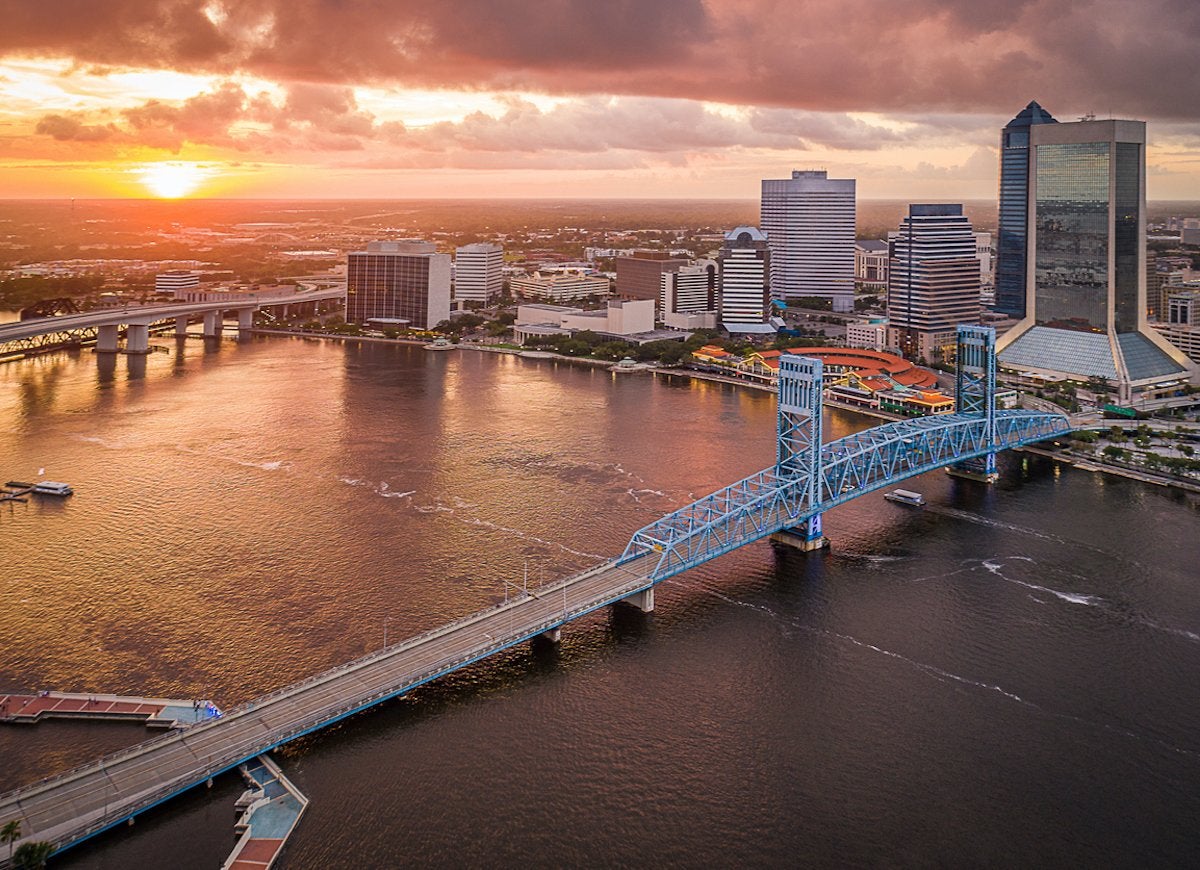
With an average humidity level of around 76 percent, Jacksonville is the second most humid city in the country, according to the World Data Center for Meteorology. Mornings are the muggiest, with an average peak humidity level of 89 percent at 4 a.m.
Houston, Texas
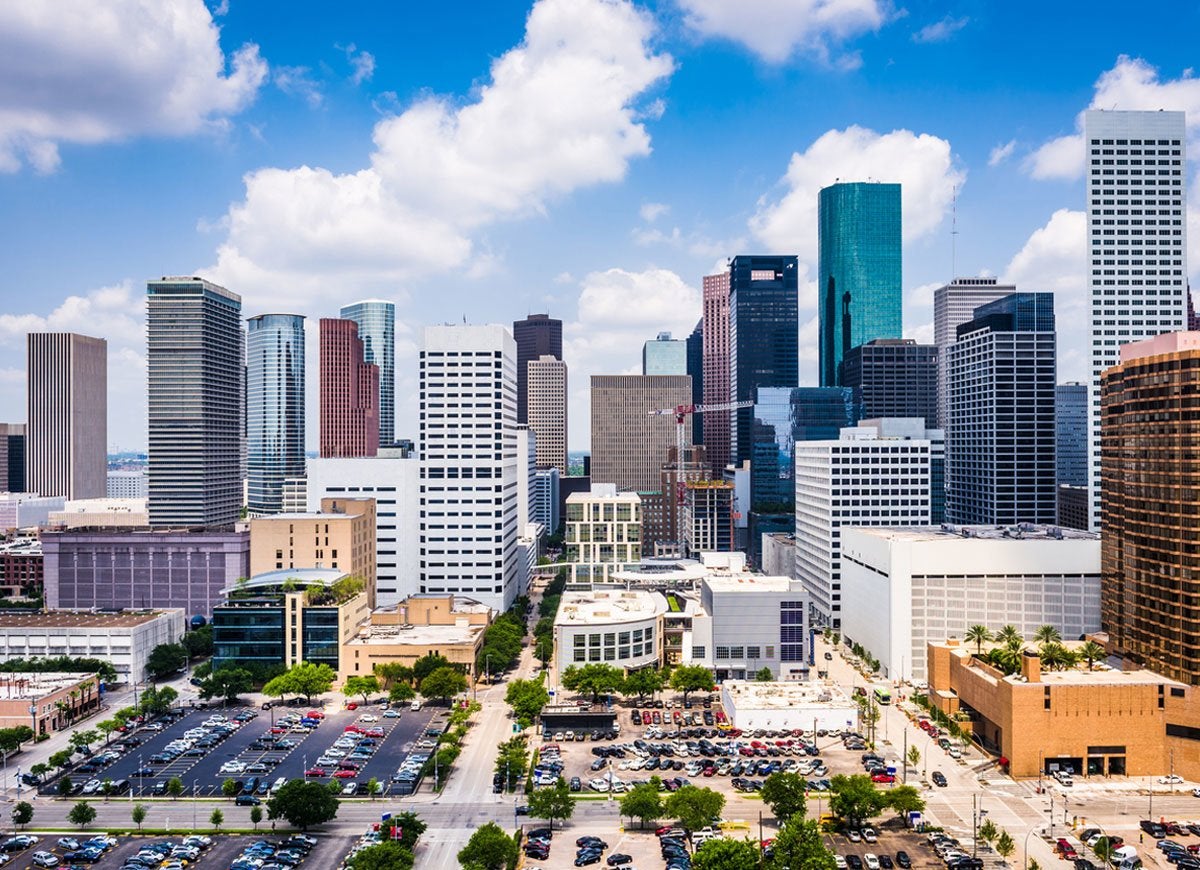
Mornings reach a peak average humidity level of 90 percent in Texas’ most populous city, compounding the discomfort of Houstonians on the 100 days each year when temperatures reach 90+ degrees Fahrenheit.
Orlando, Florida
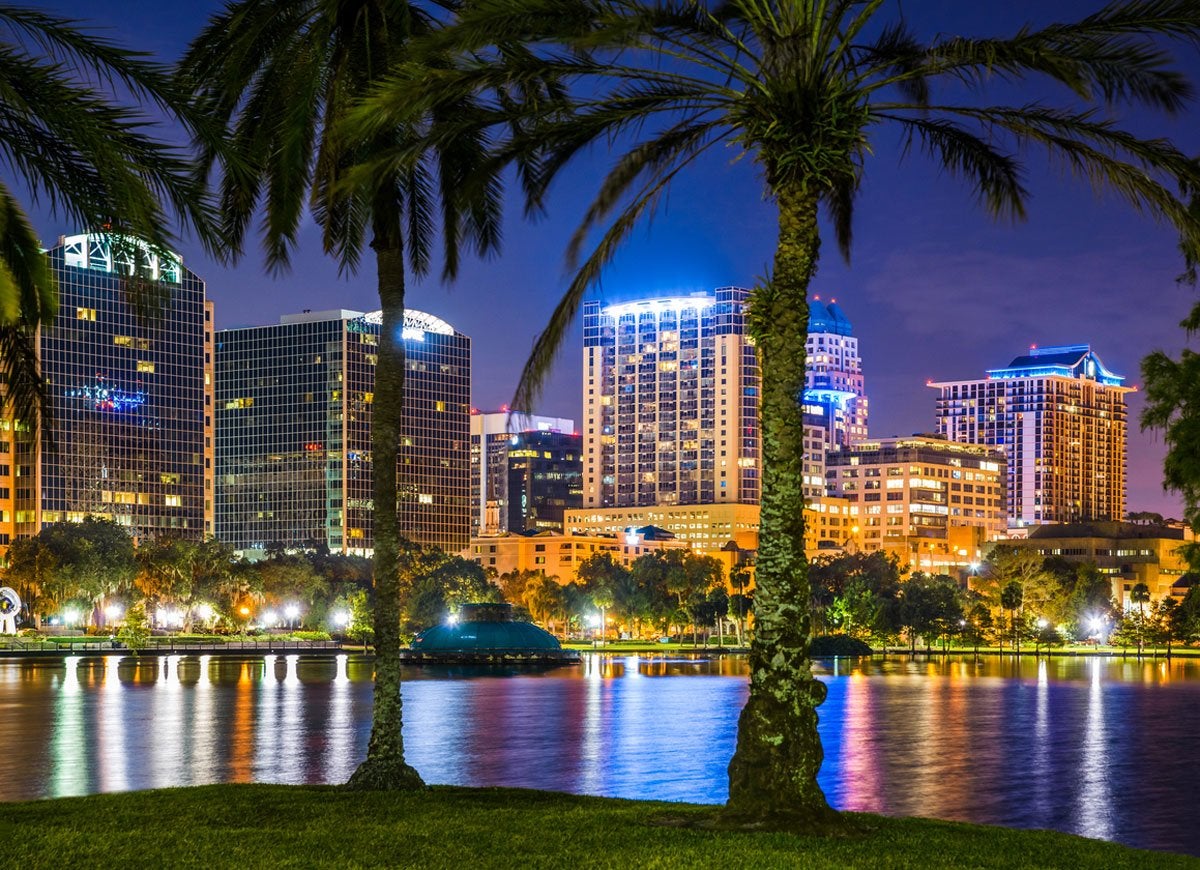
If you venture off to Orlando to visit its renowned resorts and parks, you’re likely to be greeted by much more humid weather than you’re accustomed to. With an average of 74 percent humidity, it’s the fourth most humid city in the United States.
Los Angeles, California
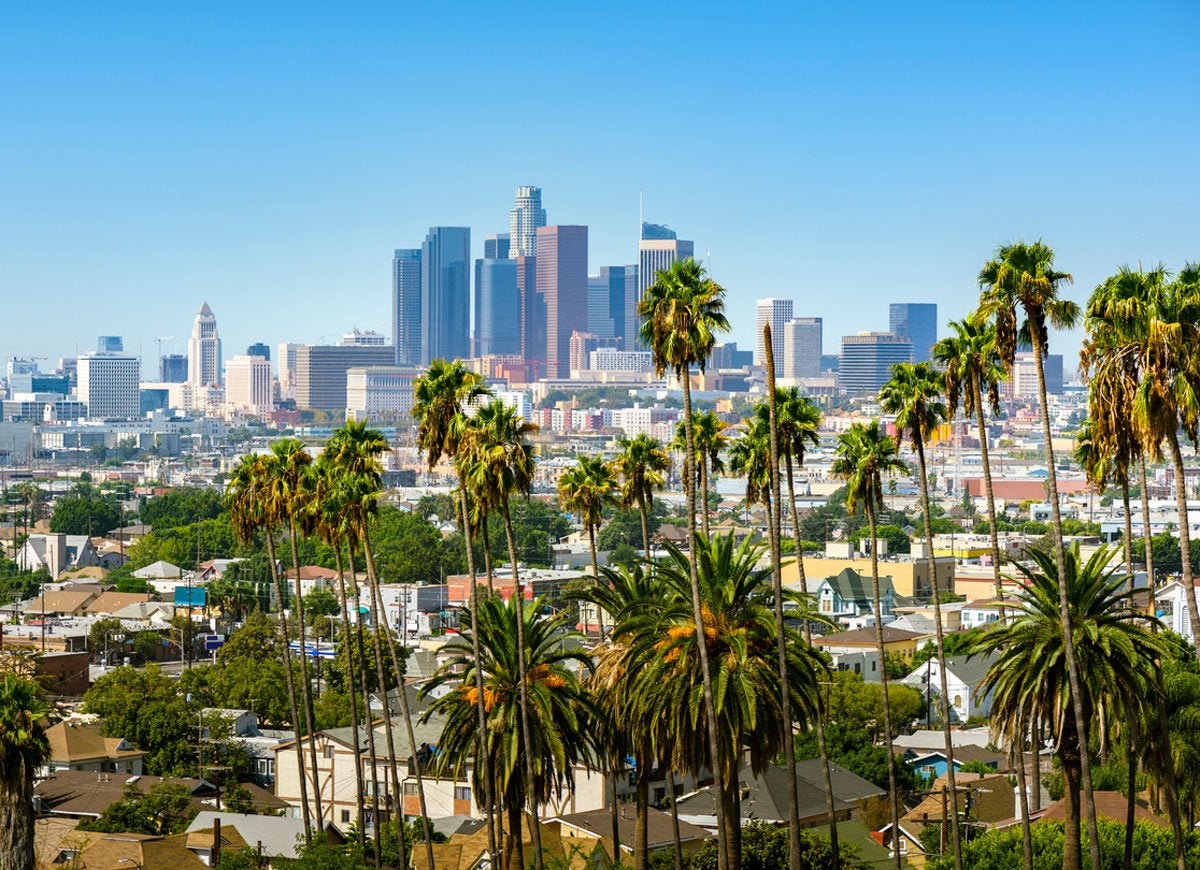
For gridlocked commuters, the City of Angels has a dark side: smog. The Los Angeles basin experiences the greatest number of days with the highest ozone level, according to the American Lung Association.
Lubbock, Texas
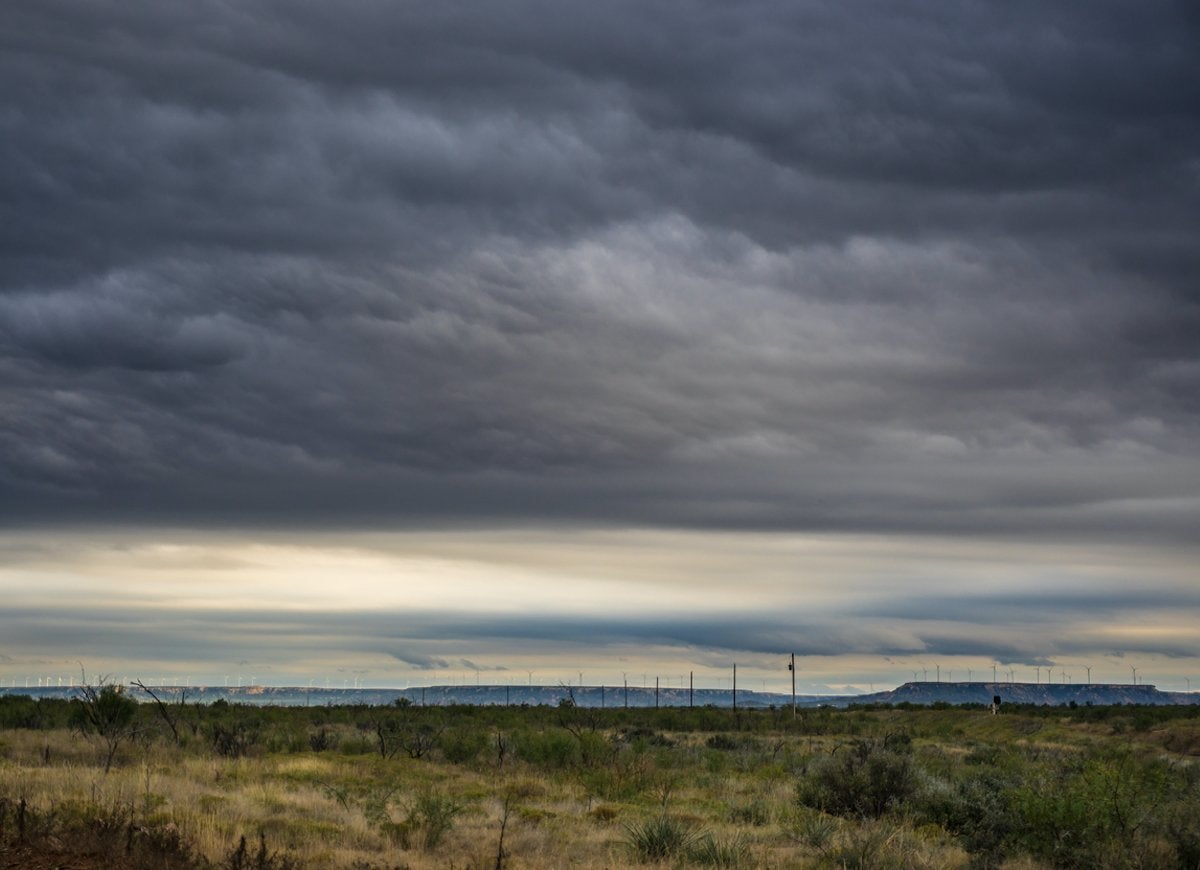
Extreme temperature swings, tornadoes, dust storms, and firestorms—Lubbock has it all. These diverse discomforts make this northwestern Texas city a bit of a challenge for new residents accustomed to more temperate climates.
